#hamliet reviews
Text
Hazbin Hotel Has Better Theology Than Most Modern "Christian" Stories
As a Christian who was raised in a fundie cult and escaped to now have a far healthier and vital faith, I genuinely really like this show. The songs are bops. The characters are well crafted and interesting, and likable too. The art design is bizarre but appealing.
And, as a theology nerd who studied theology as part leaving said cult and also has since gotten papers published in theology, I'm actually fairly impressed by the show's handling of theology.
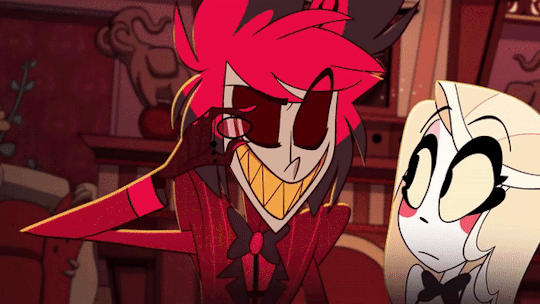
No, I'm not expecting the story to preach or even like, be explicitly Christian in a lot of ways. But it's taking a lot of the really beautiful aspects of Christian theology and re-contextualizing them in a way designed to provoke thought: by juxtaposing them with the antithesis of what you would think, by making demons heroes. In my opinion, this makes the beauty shine brighter.
Yeah, yeah, it's designed to be offensive and obscene in a lot of ways. Yet, it's never (thus far) mean-spirited. On the contrary, it seems to have a big, beating heart at its core that is perhaps best embodied by Charlie Morningstar, its protagonist and the daughter of Lucifer and Lilith.
Critique of the Church, with Caveats
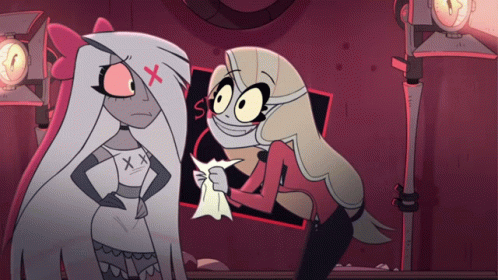
The story works best with an interpretation that heaven isn't actually heaven or God (who has been conspicuously absent), but instead as a critique of the church. Specifically, the evangelical American church, and specifically, white evangelicals. (Same as She-Ra's premise, actually).
God's absence therefore makes sense, because while Christians do believe God is present as a living reality among us, we also can't like, see him physically now. So, God being not even mentioned in HH makes it seem more like a mortal reality rather than an immortal one. Honestly I kinda hope God doesn't appear in the story, not only because I think it could cross some lines (which is admittedly personal), but also because I don't see that the story really needs it.
Adam in particular reminds me of every "theobro" on Twitter (I'm not calling it what you want me to, El*n). Basically a dudebro coopting his supposed salvation to flex in an often misogynistic way, who doesn't realize that he has absolutely no love in him and therefore is actually a worse human being than everyone he condemns on the regular.
(Which is kind of why I'm expecting Adam to wake up in hell next season...)
Think red hats. And Mark Driscoll. And, I have a list of pastors. Sigh. They advocate for how "simple" Christianity is, except they themselves make it ridiculously complicated and don't even examine what they suppose is "simple" if it requires them to take the planks out of their own eyes. "Shallow" is a better description of what they actually preach.
But what sends people to hell or heaven anyways?
Eschatology and Atonement Theory

Hazbin Hotel combines a lot of theories, throwing not only the idea of a physical hell (albeit mixed with Dante's idea of what hell is the Inferno, but to be fair a lot of the church has adopted that idea too) but the idea of annihilation, which HH calls "extermination."
See, in Christianity, there's a lot of debate about hell. Like, since 2000 years ago. The reason is because a lot of Bible verses seem to indicate hell, but others indicate the eventual redemption and salvation of absolutely everything in the universe, so you have Christian universalism tracing itself back just as long. But, setting aside universalism, people who do believe in hell tend to fall into one of two camps:
Physical hell, aka suffering for eternity, or annihilation: the idea that souls that aren't saved end up annihilated, or snuffed from existence. HH combines both of them, wherein everyone lives in hell but then every so often heaven "exterminates" a certain number of sinners.
And then you also have Catholic purgatory, which is also adapted in HH in that... for most Christians, physical hell doesn't offer the ability to redeem yourself. Chance over, you're dead. But, Catholic Christianity, which draws on ideas of praying for the dead, has the idea that people can improve themselves or be prayed out of it and into heaven. This seems to be somewhat similar to the idea of Charlie's hotel, in that sinners can improve, redeem themselves, and rise to heaven.
And, I mean, it's already kinda worked. Sir Pentious acted out Jesus' words: Greater love has no man than this, that he lay down his life for his friends (John 15:13).

But anyways, the branch of theology that deals with the afterlife is eschatology. And Hazbin Hotel takes on a related form of theology as well, a type of theology I've only seen covered in stories once before (The House in Fata Morgana): atonement theory.
Atonement theory is something I remember well from my theology 101 class, as in I remember sitting with a friend and her turning to me and being like, "okay, so we know Jesus' death and resurrection give us eternal life, but we have no idea how or why?" To which the answer was "basically, yeah."
Most of the white, American evangelical church is very "penal substitutionary atonement," but the reality is that this theory has only been popular for the past few hundred years. It's also, imo, somewhat scripturally unsound. But there are a lot of other theories, and sometimes the theories overlap. Here's a fairly decent summary. (I'm in general a believer in Christus Victor.)
So how does atonement theory tie into Hazbin Hotel? Well, essentially the scene where Charlie and Vaggie are debating with Emily, Sera, Adam, Lute, and others in heaven is them going over various atonement theories and realizing that they actually know nothing at all. How does one get to heaven? How is one saved? They don't know.
Sera criticizing Emily for asking questions was also very relatable, and I feel for Sera. She's genuinely scared but the truth will set you free, Sera. John 8:32. Anyways, the point is like... the angels are an organized religion, an evangelical church, that preaches about simplicity but mistakes shallowness for simplicity and discourages depth and discovery.
Anyways, the whole crux of theological study and atonement theories is that they should promote humility. We don't know for certain on this side of the curtain. That's okay. So what do we have to guide us?
Love. After all, God is love (1 John 4:8).
Charlie is Jesus
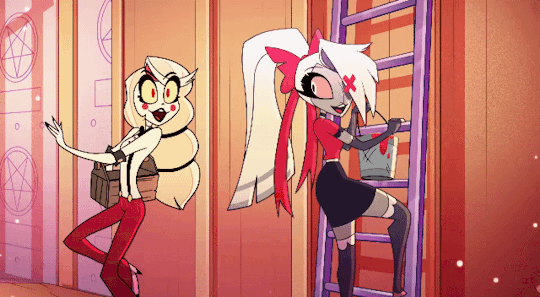
"Why would you endanger your immortal life for these sinners?"
Adam, the absolute worst, says the above to Charlie in the finale.
I mean... look. That's literally the premise of Christianity. That the immortal son of God comes down to earth, lives with sinners, loves us, and dies to save us. However that happens. Charlie even responds:
"They're my family!"
In other words, she loves them. Yeah, sure, they're destined for extermination, but they are going to be exterminated over her dead body.
In a lot of branches of Christianity, and even in some creeds--though I'm going to give into my pet peeves here and state that it is NOT Scriptural and relies on the faulty assumption that God is bound by time, when I think God exists outside of it--state that Jesus descended into hell after his death and took all the souls of people who were saved prior to his coming to earth to heaven. Again, I think that's small-minded at best. But, the idea that Charlie is working among them to bring them to heaven is pretty reminiscent of this idea. And I don't hate it lol.
Charlie sees worth inherent in everyone, and no matter what they've done, thinks there's a future for them. Honestly we need people like her on this earth.
Angel Dust

Angel Dust is clearly my favorite character. Bite back your shock, I know (I have a type). But his name is also a fascinating multi-layered pun.
Angel is clearly foreshadowing his endgame. Let's be real, we all know Angel is ending up as an angel. And "angeldust" is of course a name for PCP, and considering Angel's drug habits, yeah.
But, dust also has another meaning to it. See, when Adam was created in Genesis 2:7, the words in Hebrew are "apar min ha'adamah," which is translated literally as "dust of the ground." So the dust is what creates Adam, literally "ground."
In other words, I very much expect Angel Dust to end up being foiled with Adam even more so. Adam might be the first man, but Angel is the first sinner working towards redemption. And let's be real, for all Angel's flaws, he's already a better person than Adam. And if there's any hope for Adam (not that I particularly care if there is but) it'd be through realizing that he and Angel aren't actually different after all. Conversely (and not necessarily mutually exclusively), Angel might serve as a more symbolic "adam" in that he becomes the person all sinners look to for hope. Which, y'know, since "the last Adam" is also a Scriptural term for Jesus...
And so it is written, “The first man Adam became a living being.” The last Adam became a life-giving spirit. (1 Corinthians 15:45).
I fully expect Angel's arc, alongside Charlie's, to bring life and redemption for everyone around them. Maybe, maybe even the dramatic "all" of Colossians 1:20 (which means, literally, all, everything, everywhere, in the entire universe).
Closing Thoughts
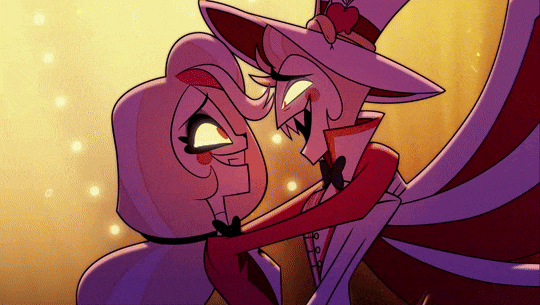
But honestly, regardless of how the story ends--besides that it will presumably end happily because HH is at its core feel-good despite being profane--season one at least has got good theology. Why? Because it's digging into the questions that theology is concerned with. It's digging into the ideas of human nature, of what it means to be a good person, of what it means to redeem oneself, of affirming how precious each individual human soul is.
It doesn't offer cheap answers, and it specifically calls out the white American evangelical church for how it purports to be simple but actually just confuses people and punishes them for things they can't help, that creates more stumbling blocks than it does shine a light. And it does it in a way that is scandalous. Offensive to many religious people.
But, y'know, Jesus was pretty scandalous too.
So I really love the story so far because it emphasizes what I find so beautiful about my religion, and criticizes the parts that have also hurt me. I don't think it's remotely aiming to be a Christian allegory or anything like that, and I don't at all think anyone has to be religious to enjoy it or gain the core message of it, but I do think that it's doing a hell of a lot more good in the world message-wise than most evangelical movies of the past 30 years.
#hazbin hotel#hamliet reviews#theology#christianity#charlie morningstar#jesus#angel dust#angel hazbin hotel
305 notes
·
View notes
Text
Chemical Weddings: White Knight
Here it comes my second short meta on RWBY's chemical weddings. It is White Knight's turn! Feel free to skip the introduction, if you have already read it in my previous post (or if you already know what a chemical wedding is)
WHAT IS A CHEMICAL WEDDING?
A chemical wedding is a motif used in alchemical stories (aka stories, with symbols related to alchemy). It is a metaphorical union between characters and it represents two opposites coming together. Think of it as a motif that comments on a relationship and describes how it changes throughout a narrative. It shows how two characters' bond develops and how they integrate qualities of each other. Even if it is called "wedding", the union doesn't necessarily have to be romantic, but often it is. Like in RWBY's case.
RWBY uses chemical weddings to develop romantic relationships. How does the series do it? This meta by @hamliet explains it perfectly:
It uses some alchemical imagery (like plates from alchemical texts as reference)
It employs elemental motifs (water, fire, air and earth), which are keys to alchemy
It integrates other symbolism, like romantic subtext or fairy tale references
Both hamliet and I have already talked about RWBY ships and chemical weddings, so this short meta is just a quick review of White Knight’s ones, with some integrations.
Here are Whiteknight's posts, that I am going to reference:
Weiss and Jaune's foiling throughout the series
White Knight and Arkos (+ Whiterose)
White Knight's scenes in volume 9
White Knight's chemical wedding 2.0 by hamliet
Now, let's dig into White Knight's two (for now) weddings.
WHITE KNIGHT'S WEDDINGS
White Knight's weddings make use of this imagery:

There is a Mercurius (entity representative of change), who unites a man and a woman through impaling one of the two.
This is what happens to Weiss and Jaune twice:
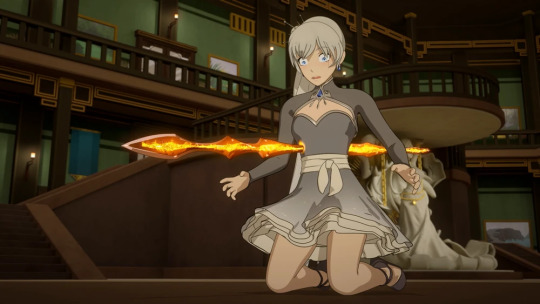
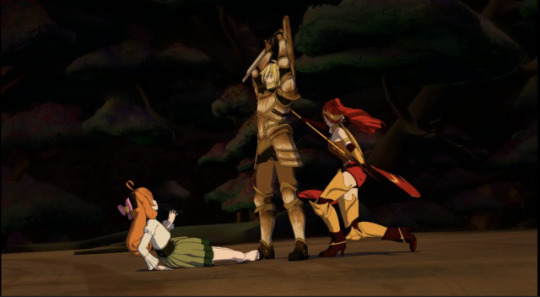
In Mistral Cinder impales Weiss and in the Ever After the Curious Cat impales Jaune. Not only that, but both Cinder and the Cat make sure Weiss and Jaune indirectly hurt each other.
Cinder takes Jaune's heroic remarks and uses them as an excuse to mortally wound Weiss:

The Cat tricks Weiss into physically hitting Jaune:
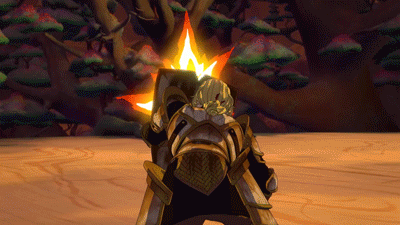
These parallelisms lead us to two considerations:
The two weddings are inversions: this isn't any news because in RWBY the second wedding is always an inversion of the first. Still, when it comes to White Knight, this inversion is particularly through and it ties with an important motif of theirs. Weiss and Jaune are strong mirrors of each other.
Cinder and the Cat (our two antagonistic Mercurius) force Jaune and Weiss into specific gender roles. Both mock Jaune (the knight) and use Weiss (the damsel). This isn't by accident and it ties with the archetype explored by White Knight, aka that of the Anima/Animus.
MIRROR MIRROR = ANIMA + ANIMUS
Weiss and Jaune's weddings mirror each other in multiple ways. Let's see how.
Weiss and Jaune's first wedding starts with Cinder impaling Weiss and leaving her to die. Jaune rushes by her side and activates his semblance to save her. The whole scene ties in their respective fairy tale symbolism. As a matter of fact Jaune performs a miracle as Jeanne. Weiss instead gets resurrected by the Prince and crowns herself Queen Snowhite through the Queen Lancer.
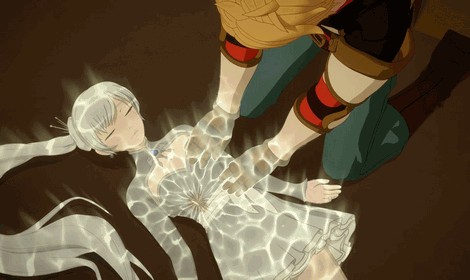
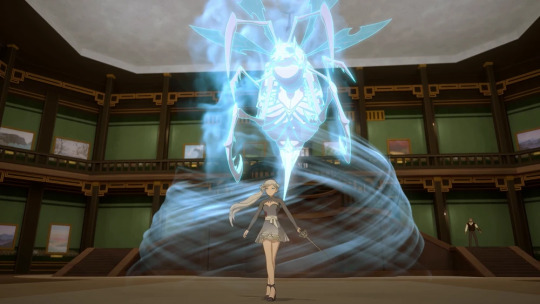
Weiss and Jaune's second wedding starts at the end of volume 8, when Cinder defeats them both and reiterates their trauma. She forces Jaune to kill a maiden and targets Weiss to hurt Winter. She is also the reason why Weiss and Jaune end up together in the Ever After, where their wedding reaches its climax. In this magical world, Weiss guides Jaune towards self-realization and metaphorically has him fall, so that he can integrate Alyx and resurrect. Their interaction in volume 9 references another alchemical text, knowns as the Splendor Solis. Specifically, it alludes to this plate:

This plate has:
2 miners excavating a hill (a metaphor for making the stone from the prima materia). It is important that the two characters wear respectively a golden and a silver robe, which call back to the Sun and Moon
The Sun and Moon mirroring each other. The Sun is in the sky (air) and the Moon is in the river (water). They are opposites balancing each other
Eshter's story pictured in the frame of the pedestal. Eshter is a biblical character and the second wife of King Ahasuerus, who is determined to kill the Jews. Still, Eshter (a Jews herself) steps in, touches the King's staff and convinces him to let her people live
The plate's theme is the beginning (prima materia) of a union (sun and moon) through communication (Eshter's parable).
It is referenced here:
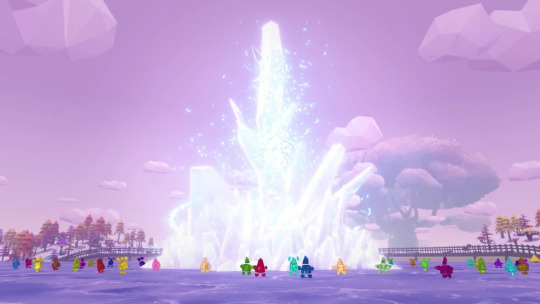
The Genial Gems create a giant white hill, which clearly alludes to the philosopher stone. Jaune and Weiss play the Solar King and the Lunar Queen:
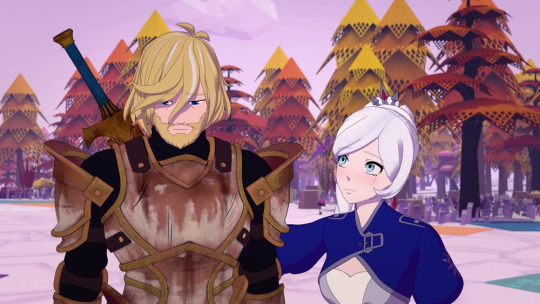
Jaune is linked to the sun and masculine (gold), while Weiss to the moon and feminine (silver). They grow closer thanks to empathy.
In particular, their interaction is an inversion of King Ahasuerus and Eshter's. In the biblical episode, the King wants to kill the Jews and Eshter stops him. In RWBY, Jaune doesn't want to let the Paper Pleasers ascend and Weiss tries to get through to him (together with BY):
Weiss: Then why do you care so much about this village?! Jaune: Because I can actually PROTECT these people!!
Just like Esther touches the King's staff, Weiss grabs Jaune's sword:
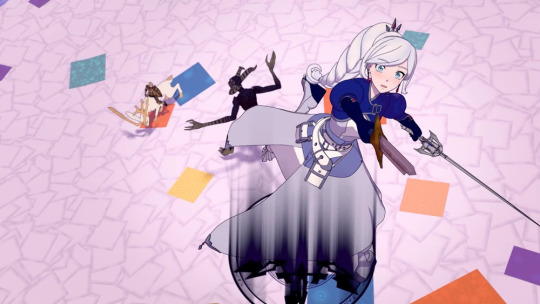
Eshter's gesture is a symbol of intimacy and connection. Similarly, using another person's weapon in RWBY shows closeness.
In short, both weddings are rich of symbolism, but the first focuses on the fairy tale allusion, whereas the second explores alchemical imagery. This isn't the only difference, though, as the two situations are perfect parallels/inversions of each other:
In Mistral, Cinder kills Weiss to hurt Jaune, whereas in Atlas, she forces Jaune to kill Penny. Moreover, both times she negates Weiss's agency and uses her as a pawn to hurt someone else (Jaune and Winter).
In Mistral, Jaune and Weiss go through a crisis together, but they emerge victorious. In Atlas/Ever After, Jaune and Weiss lose, but grow closer as they come to terms with this defeat.
In Mistral, Jaune hurts Weiss because of his psychological issues, but saves her physically. In the Ever After, Weiss saves Jaune psychologically, but hurts him physically. Both are responsible for the death and resurrection of the other.
In Mistral Jaune unlocks his semblance (changes spiritually), whereas in the Ever After he becomes young again (changes physically). Both in Mistral and in the Ever After Weiss ends the wedding by unlocking a new summon. She conjures the Queen Lancer in Mistral and the Nevermore in the Ever After.
In Mistral, Jaune is led by Pyrrha towards his ideal-self, whereas in the Ever After, he is led by Weiss towards his real-self. Symbolically, he goes through two stages of the anima integration. From Pyrrha/Mary (devotion and idealism) to Weiss/Sophia (understanding and reality).
In Mistral, the resurrected Weiss unlocks her Queen Lancer, which is key to fighting Hazel. In the Ever After, Jaune integrates Alyx and is reborn after a trial of fire. Once he comes back, he is key in defeating Neo and the Cat with his plan to separate them. Both do not "win" the conflict, but are instrumental to its solution (Weiss through heart and Jaune through mind).
In general, both times Jaune and Weiss make important steps to integrate their anima/animus, which their bond represents. The anima/animus is the feminine (anima) and the masculine (animus).
In Mistral:
Weiss integrates her animus and summons a Queen Lancer, an entity which is both queen (feminine) and knight (masculine)
Jaune integrates his anima (feminine) by discovering himself a healer (traditionally feminine quality)
In the Ever After:
Weiss integrates her animus by acting as Jaune's Knight. She summons her Knight while fighting side by side with him. Moreover, throughout the whole volume Weiss looks for someone who can guide her home. It turns out in the climax she herself is the guide, the knight, who leads Jaune and the others to the tree. As a matter of fact she is the one who teaches the others the theme of "acceptance".

Jaune integrates his anima by accepting he is no hero (no Knight) and by realizing Alyx is a part of himself. He faces her and integrates her spiritually (her vision in the smoke) and physically (her knife):

In volume 9, both Weiss and Jaune regress and go back to their stereotypical selves. Weiss is stuck as the damsel and Jaune rusts as the knight. However, they move on thanks to each other. They are reborn.
WHITE KNIGHT= REBIRTH
The focus of White Knight is rebirth (coagula). In Mistral they get a victory and in Atlas they get a loss. Still, both weddings climaxes in resurrections. Weiss is reborn in volume 5 and Jaune is reborn in volume 9. Not only that, but after White Knight's Ever After wedding Ruby herself is reborn:
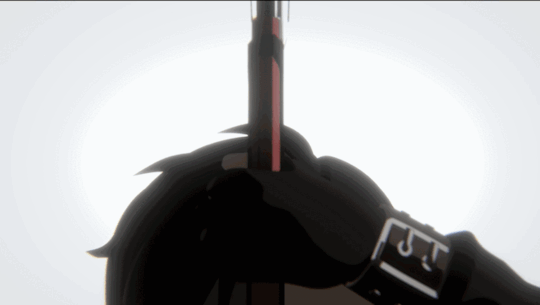
This renewal of the self is celebrated by a full Nevermore:

This marks White Knight's second wedding as their nevermore wedding, which has them overcome grief through love.
NEVERMORE
Weiss summons her full Nevermore in the finale. This Grimm is tied to both Ruby and Jaune.
It is symbolic of Ruby's rebirth, as it is the first Grimm team RWBY killed together and Ruby landed the final blow. Weiss is able to manifest it because by the end her team is whole again and Ruby is back.
It celebrates Jaune and Weiss's wedding, as our Lunar Queen conjures it after her interaction with Jaune. Their exchange is the pivotal moment for Weiss in volume 9, as she helps herself by helping Jaune. She teaches Jaune to forgive himself and learns to forgive herself at the same time. As a result, she unlocks this summoning, which is symbolic of the self:

Its glyph is in fact a mix of all the other ones, as Weiss is a sum of all her avatars.
Jaune too makes a decisive step towards the self:
Alyx: Maybe it’s time for a change, to be the kind of man you always wanted to be.
He accepts Alyx and gets a second chance to grow up as a result:
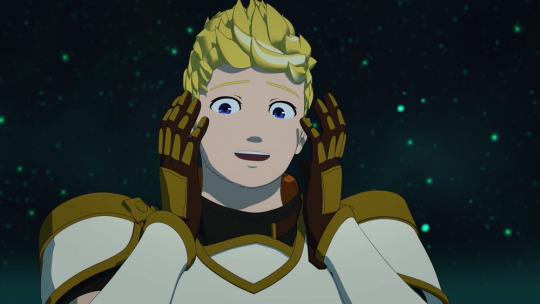
His new self has a white streak of hair to show he has successfully integrated with Weiss (white) and has obtained wisdom.
FROM UNCONSCIOUS TO CONSCIOUS
There is one final difference between White Knight's two weddings. The first has Weiss and Jaune's metaphorical union happen unconsciously. The second instead has this process become conscious. Let's consider this:
In Mistral Jaune instinctively activates his semblance and Weiss unconsciously unlocks her summon. Their actions happen because of internal and unconscious changes that are not elaborated on. They are quick transformations and the wedding itself is quick.
In the Ever After Weiss consciously encourages Jaune. By doing so both characters find a catharsis for their unconscious feelings. They make them conscious. Similarly, Jaune can consciously face Alyx and integrate with her. Weiss's own summoning is not quick and raw, but it is the result of a process that starts in volume 8 (when she fails to materialize the Grimm), goes on in the chess fight (she has the wings appear) and is finally complete at the end of volume 9 (the full Nevermore manifests itself). The wedding is also very slow and distributed throughout two volumes.
This choice makes sense, as Weiss and Jaune's dynamic is about them slowly realize who they are and who the other is. They have been each other's mirrors since the beginning and as they better understand themselves, they can better relate to the other and accept them.
#rwby#rwby chemical weddings#chemical weddings#white knight#weiss schnee#jaune arc#rwby meta#rwby alchemy
39 notes
·
View notes
Text

I posted 2,715 times in 2021
38 posts created (1%)
2677 posts reblogged (99%)
For every post I created, I reblogged 70.4 posts.
I added 398 tags in 2021
#💙🧡 - 232 posts
#tag game - 26 posts
#kagehina - 22 posts
#haikyuu - 22 posts
#🧡 - 21 posts
#hinata shouyou - 18 posts
#🥺🥺🥺 - 17 posts
#kageyama tobio - 15 posts
#ask - 13 posts
#💙 - 12 posts
Longest Tag: 133 characters
#•‘grrrrr i hate that you’ve got so much wasted potential so i will yell at you from across the court even though idk who tf you are’•
My Top Posts in 2021
#5
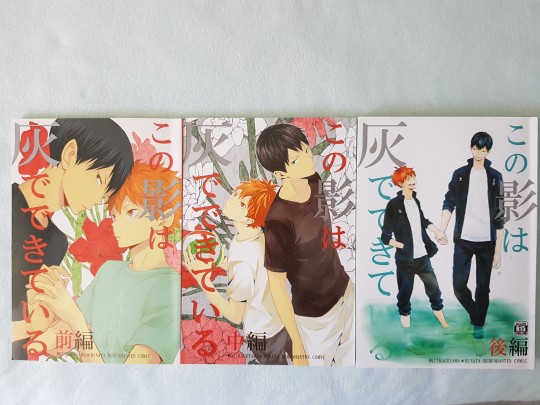
Now it's complete!💙🧡
46 notes • Posted 2021-07-15 17:18:11 GMT
#4
Now that Vanitas gets an anime, I hope Pandora Hearts will get its reboot too...:")
50 notes • Posted 2021-03-28 10:52:43 GMT
#3
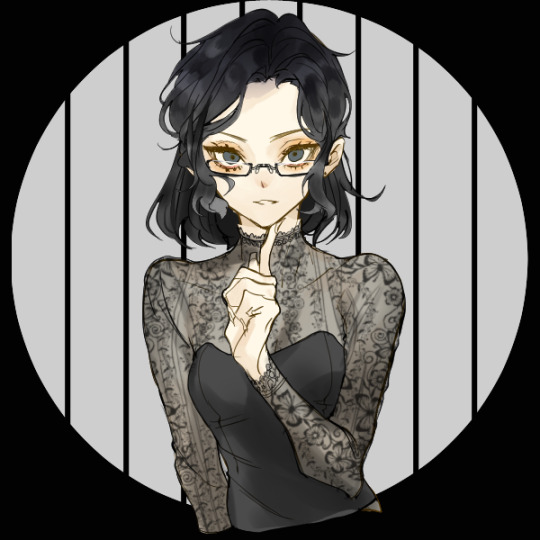
New Picrew!
Create what you want and have fun!^^
@mamasaiko @njess22194 @sharlothaven @aaravos-startouchelf @thefandomsurfer @iamhavinganicedaythanks and anyone who wants to try!
50 notes • Posted 2021-08-06 12:51:05 GMT
#2
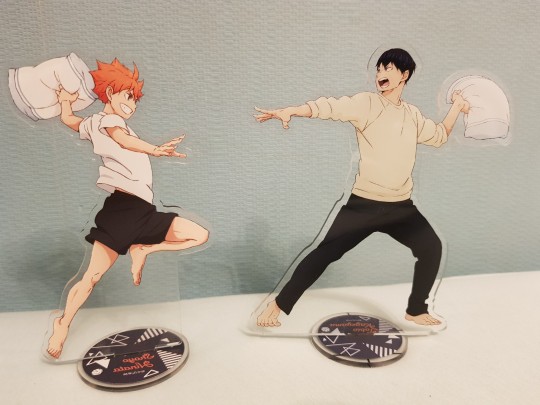
They arrived today!💙🧡
77 notes • Posted 2021-01-02 19:30:35 GMT
#1
Happy Hinata Month! 🧡 Happy Pride! 🌈
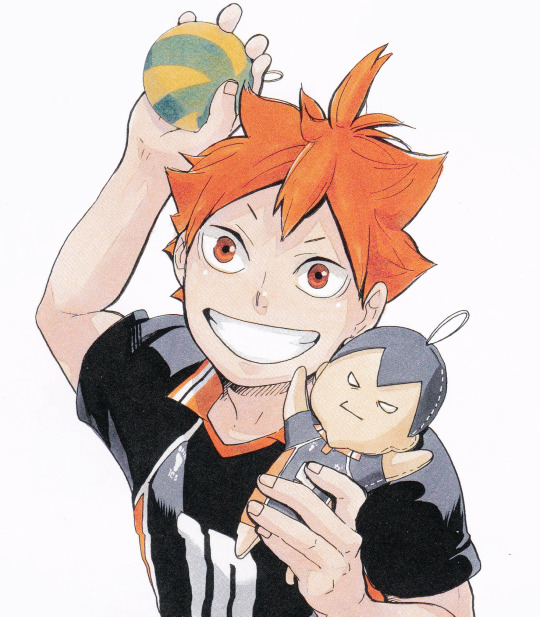
79 notes • Posted 2021-06-01 22:36:56 GMT
Get your Tumblr 2021 Year in Review →
I knew most of my stuff is about Haikyuu, sorry not sorry.😂 I tag @mamasaiko @iamhavinganicedaythanks @hamliet @isammy7936 and @aaravos-startouchelf !
#my 2021 tumblr year in review#your tumblr year in review#This is fun to know! Great new option on tumblr!#tag team
8 notes
·
View notes
Text
The Sunnydale Herald Newsletter, Monday, January 18
HALFREK: You people deserve to be cursed. Enjoy your time together. From now on ... all you have is time. Time ... and each other. Good luck!
Dramatic music swells. Halfrek makes a dramatic motion with both arms, but does not disappear.
HALFREK: Wait ... (nervous laugh) Wait. (muttering to herself) Time, and each other.
Dramatic music. Dramatic arm gesture. Halfrek again fails to disappear. She looks annoyed.
ANYA: (rolling her eyes) It's the curse, Hallie.
HALFREK: Oh, for crying out loud. Fine, the curse is lifted! We can all leave now! ... Damn it.
She snaps her fingers and disappears.
~~Older and Far Away~~
The Sunnydale Herald is looking for a few new editors! Contributing to the Herald is a great way to get your Buffy on! For more information, drop us an ask on Tumblr or contact Rahirah on LJ or DW!
[Drabbles & Short Fiction]

you just need a better life than this (you need something i could never give) (Faith/Buffy, not rated) by toyhdgehog
All Monsters Great and Small (Giles x Ethan, T) by NAOA
Deepest Desires (Xander/Dawn/Buffy/Willow/Anya/Tara/Joyce, E) by WestOrEast
Just Rewards (Angel x Spike, T) by Gabriel_Is_My_Guardian_Angel89
I want blood, guts and Angel cake (Angelus/Drusilla, M) by killing_kurare
i'm gonna tell you how it's gonna be (crossover with Supernatural, Connor, T) by mehnema
Between (Spike & Angel, T) by Gabriel_Is_My_Guardian_Angel89
Hell Bound (Spike x Angel, T) by Gabriel_Is_My_Guardian_Angel89

Not Playing Nice (Spike x Reader, not rated) by inkandpen22
Masterlist (of Spike x Reader stories, not rated) by blainesadumbass
[Chaptered Fiction]

Not Writ in the Stars, Chapter 1 (Drusilla/Spike, M) by Coldest_Fire

Daughter of Aurelius, Chapter 22 (Spike/Buffy, NC-17) by Loup Noir
The Demon, The Witch and The Warlock, Chapter 1-6 (Spike/Buffy, NC-17) by AlloSpoike
Child of Shadow, Chapter 3 (Spike/Buffy, R) by Sigyn
Pretty Petals, Chapter 9 (Spike/Buffy, NC-17) by Dusty
What Goes Around, Chapter 22 (Spike/Buffy, NC-17) by celtic_goddess

Fighting the Darkness, Chapter 22 (crossover with Smallville, Buffy) by lateVMlover

Strange Land, Chapter 16-17 (Spike/Buffy, 13+) by Zab Jade
What Makes a Monster, Chapter 19 (Spike/Buffy, 18+) by SleepingTigress
Loyalty, Epilogue (Spike/Buffy, Spike/OC, E) by Zab Jade
[Images, Audio & Video]

Artwork: Banner for thewiggins' story Anywhere But Here (Spike/Buffy, worksafe) by thenewbuzwuzz

Artwork: Buffy Summers icons (worksafe) by gt-icons
Artwork: 6 Tara Maclay icons (worksafe) by buffyscmmers

Music: Buffy theme cover as part of Nostalgia Medley by Royal Philharmonic Orchestra

Artwork: "Grrr Argh" drawing (the mutant enemy, worksafe) by HauntingMud3843
Photos: Found a BTVS scrapbook I kept in 1998/1999 (worksafe) by Will-There-Be-Food
[Reviews & Recaps]

Boom!Buffy reviewed: Issue 18 by harsens_rob
Boom!Buffy reviewed: Issue 19 by harsens_rob

Thoughts from my Buffy rewatch 3x10 by yesitsterriblysimple
Thoughts from my Buffy rewatch 3x11 by yesitsterriblysimple
The Girl Who Gets to Have It All: Buffy Summers (series review) by hamliet
Episodes of television that invented television: I Only Have Eyes for You by emilydickinsonapologist
Selfless by yetanotherbuffyblog

Buffy Breakdown: S2E10 What's My Line pt. 2 by Biff the Temperamental Werewolf

Thoughts on a rewatch, S6E8-S7E3 by Overlord1317
"Slouching Toward Bethlehem" is a great episode. by GuitarTest
Season 5 by ember3pines
Get It Done by caldude1985

PODCAST: Buffy and the Art of Story: The Prom
PUBLICATION: Rewatching Angel – Episode 101 by peckapalooza
[Fandom Discussions]

I rewatched Angel S2’s Dead End so I could finally screenshot Cordelia’s outfit by amazighbuffy
I’ve jumped to late season 3 and I’m so delighted by rebel!Giles by roselightfairy and Also speaking of Wesley... by roselightfairy, brassmama
Parallels with "Supernatural": "Dead Things", "Grave", BtVS season 6 by buffyannesummrs
Destiel and Spuffy parallels by jenderossackles
Buffy/His Dark Materials AU where everyone has a daemon, but when someone gets turned into a vampire... by toriasimmons
can you IMAGINE how cool the parallels between giles and jenny could have been? by funeraryrelics

Do we think Angel/Angelus killed a slayer? by darkspook and others
Buffy's Point of Transition by Moggin and others
Is it me or Jonathan has no common sense? by sweetiepie and others
Let's discuss our favorite script writers by AnthonyCordova and others
Which Buffy/Angel character(s) are you most like? by Moggin and others

End of Days [draft scripts] by SpuffyGlitz and others

"I've heard you sing" line [Lorne and Lindsey's last scene together] by Willdon231
Question about Australian box set by dontfwithme99
What is your favourite two line exchange? hosted by Reference-Inner
The character of Buffy hosted by toomuchaffectionlove
Most unexpected death from Buffy Season 7? hosted by Willdon231
Would Wesley s4 [AtS] have made a better Watcher for Faith than the Wesley from Buffy? hosted by NewShinyThings
Most unexpected death from Buffy Season 3-4? hosted by Willdon231
Who do you think was Buffy’s true best friend? hosted by lemonpaloma
Who are your favorite Angel characters? by Proud3GnAthst
How much of a role model or feminist icon was Buffy and the series back in the day? hosted by KevTravels
Most unexpected death from Buffy Seasons 5-6? hosted by Willdon231
I don't particularly ship Faith and Robin but... by TypicalPsychology6 and others
Wesley and Cordelia's friendship is one of the show's highlights by 28shawblvd and others
How would you describe the series to a friend? hosted by tabularasa1996
Buffy not killing Spike by Spuffyisendgame and others

Giles (Buffy the Vampire Slayer) NSFW Alphabet (Giles/Reader headcanons) by ynyseira
Submit a link to be included in the newsletter!
2 notes
·
View notes
Text
Beauty and the Beast, But Make It BL
Or, about a year after the hype Hamliet finally watches KinnPorsche properly instead of just clips.
My overall thoughts are that I really, really enjoyed it. The characters were likable and interesting, and plenty flawed. The story also had some really fascinating ideas and nice fire, water, and air symbolism, as well as a really beautiful retelling of Beauty & the Beast. The main couples all foiled one another in interesting, thought-provoking ways. VegasPete? Is one of my favorite love stories in any media ever.

The side characters were also really well done, for the most part. I loved Kinn's friends, and Yok was a standout in terms of her mentorly role. And, the other bodyguards each got their own personality. Arm and Big were particular standouts to me, and I appreciated how Big's story arc (his unrequited love for Kinn) was handled: with subtlety, but thematic impact. His sacrifice showed Porsche that love sometimes involves sacrificing for the person you love.
The series also used symbolism fairly well. The lighting always changed to colored/rainbow lighting when it was a romantic scene, and stayed natural when it was not. The use of mirrors and windows, and phoenix/fire with Kinnporsche and water with Vegaspete, was intelligently woven into the story. I do think some of the symbolism was too heavy-handed at points, though.
Of course, because I'm me, I do have quite a few critiques as well, which mostly has to do with what I saw as potential that went untapped. The story never did anything "wrong" exactly, but it just never dug into how much potential it had. The foiling was strongly set up, but it could have been far more powerful than it was.
The plot was basically *vibes* which I'm okay with because I'm not super into plot in general, but unfortunately, as can happen when plot is weak, the themes suffered for it. If plot is a tour guide through a story's themes and characters, this was somewhat of a bumbling one... with an occasional stroke of brilliance that reinforced how satisfying the potential was.
Kinn + Porsche

Let's start with the main couple. I really enjoyed their characters, but I wasn't as invested in them as I was in the other characters I'll be covering. They seemed more like ideas rather than human beings, even though they had more complexity than some of the other, more human characters. While that might sound contradictory, what I mean by that is that the other characters always had drive and purpose for the narrative, while Kinn and Porsche sometimes felt more like vehicles (heh, get it, because--) to get to something that never quite arrived.
Kinn and Porsche also started off the series really strong, but weakened after they got together. After they were together, the writers kept bringing up the issue of "trust" between them, but I wasn't quite sure what they were trying to say about trust. And maybe they were just trying to explore the different sides of trust rather than give any particular message, but I thought it was a bit messily handled.
Still. Still. Porsche's line in the final episode, where he pointed out to Kinn that he was there not because he was on the minor family's side, nor because he was on the major family's side, but because he was on Kinn's side, was beautiful.
Kinn also starts off as a dark foil of Vegas... which is interesting because Vegas is so intensely jealous of Kinn and wants to be like him, and is set up as the antagonist. But we'll get there. Vegas kidnaps Porsche and attempts to make it look like he was assaulted, but Kinn saves him... only to assault Porsche himself. (I did appreciate the way the narrative did frame it well, which I wasn't expecting in a boy's love story.) Kinn then compounded it by punishing Porsche for his mistake--essentially, doing to Porsche what Vegas was doing to Kinn and would later do to Pete.
The irony, of course, is that the narrative still frames Kinn as a protagonist, but without giving him a halo. We're allowed to see that he is, intrinsically, no better of a human being than Vegas. Maybe even worse, depending on how you judge.
Porsche outright telling Kinn that he had hurt him, while Vegas hadn't (even if, kinda) and Kinn actually having to work to earn his forgiveness and trust--all of this was well handled.

Kinn's final realization in the wilderness that he could not keep Porsche and his act of selflessly setting him free , followed by a literal sacrifice, mimics what Vegas would have to do in later episodes with Pete, as well.
When they consensually have sex for the first time, it starts because Vegas again makes a move on Porsche... right in front of a mirror. Then, Kinn bursts in and Vegas leaves, and Kinn takes his place in the mirror with Porsche.

The symbolism is clever here and poignant: Kinn, you are Vegas. I just wish he had been asked to do more with that realization, particularly after the Tawan incident (later).
Again, my main issue is that I wish the show had more an idea of what it wanted to say concerning the theme of "trust" between these two. Especially after they got together, it all seemed a bit hazy.
The theme that was best explored with them was the idea of being a human being. Porsche continually insists that he's a person who decides his future for himself, while Kinn is like "I control your life; your life is mine, I can kill you at any time because you're just a bodyguard" early on. However, towards the end of the series, when they exchange quasi-wedding vows in one of the final scenes on a ship on the same river where Kinn first offered Porsche a job and Porsche told him he'd rather drown, there's a really beautiful moment where Kinn tells Porsche that they are making a new family together, and Porsche tells him again that he's not on any family's side--just Kinn's side. And then he tells him:
Porsche: All my life... is yours
Kinn: I promise you, I'll treasure it.
It's almost fairy tale esque in this scene, showing how far they've come. It also emphasizes that the point is that Kinn recognizes Porsche's humanity, and Porsche still affirms his own. Humanity is not a drawback but a benefit, because Porsche chooses Kinn, and choice is the realm of human beings.
Vegas + Pete
*screams* VEGASPETE ARE EVERYTHING
But honestly. I've talked how Vegas (who is, undoubtedly, the best written character) foils Kinn and will talk about Tawan, Kim, and Tankhun later on. Firstly, though, we have Vegas and Pete, asking the main thematic question of this series:

(As a human, of course. Except that's not easy.)
Vegas was so clearly my favorite type of character (Lee Yut-Lung from Banana Fish, Akutagawa Ryunosuke from Bungo Stray Dogs, Illumi Zoldyck from Hunter x Hunter, etc.) Someone who just so, so desperately wants to be loved, especially by his father, and cannot fathom why he does not have it. So he lashes out at everyone around him, especially those he's jealous of. He might claim that he's jealous of Kinn's power, but he's really jealous that Kinn is loved not just by Porsche, but by his brothers, by his bodyguards, even by his father (for all Korn's faults--and we're gonna get there--I do think Korn loves his sons).
This is so profoundly seen when Vegas initially kidnaps Pete and forces him to call his Grandma. Vegas leans in, groping Pete to make him terrified, but as soon as Pete tells his grandma he loves her, Vegas jerks back and rips the phone out of his hand. It's another reminder to Vegas that love exists, but he can't have it.
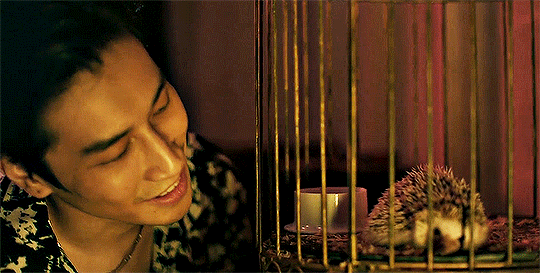
The only thing that truly shows Vegas love is his hedgehog... which of course is a symbol for Vegas himself (here's where I think the symbolism was too heavy-handed--not that he had a hedgehog nor what happened with it, but in that Pete actually bluntly tells him that he is the hedgehog. Leave it to your viewers, we're smart enough to get that.) The hedgehog, of course, is prickly and spiky but soft inside, just like Vegas.
The hedgehog is also specifically Vegas's inner child, in Jungian terms. It's always sick and dying, and he's afraid of it dying, but also afraid to actually recognize it. He doesn't name the hedgehogs because they always die. This is symbolizing how Vegas never really had a childhood, or the chance to develop normally. His father always beat it out of him and let him think that it was his fault, just like Vegas blames himself for the hedgehogs' deaths.

Vegas's father is the biggest obstacle in his growth. He can't ever truly grow up and overcome the father figure until his father's gone. Again, the symbolism is pretty blatant (but well done): Vegas is literally reading the novel Childhood's End, but his father slaps it out of his hand.
The message is clear: Vegas can't ever grow up until he lets go of his father. Fittingly, he's then seen reading the book again after making a meal for Pete.
Vegas and Pete are actually quite similar, not just in their terrible dads, but in that both of them, at their core, truly don't believe they are human beings. They don't believe they deserve love, or life, or anything. They're animals. Hence, Pete actually being called a pet is actually also Vegas pointing out how he sees himself.
But what they really want is to be human, which means to be free and to live.
Consequently, both Vegas and Pete are suicidal. Vegas drops about a million hints that he wants to die before he actually attempts it, even telling Pete he's feeding him so "you'll have energy to kill me."
Vegas self-harms too, and Pete tells him not to. Yet, after they have sex, Pete hits himself when Vegas can't see, telling himself that he didn't like it, even though he initiated. The reason they are both lost after they have sex is that neither of them are free physically or emotionally.
We see Vegas trying to do the right thing and making a fancy meal for Pete, even standing up to his father for a moment, only to have his father tell him he wishes he wasn't his son. At that added cruelty, Vegas smashes the meal he made, proving that even though he thought he was free of his father because he was in love with Pete, he wasn't. Not yet.
And Pete thought he was going to be free because of sex with Vegas, but Vegas still left him chained. Hence, he attempts suicide in front of Vegas. He also then calls Vegas out on everything in a well-done way, pointing out that Vegas is projecting his feelings of inhumanity onto him:

Need me? Like a pet with no feelings for emotional projection? I'm a human, Vegas... I have nothing left, not even my humanity.

Pete is then pointing out to us that after Vegas's childhood is grieved (shown in how Pete helps Vegas bury and put flowers at the hedgehog's grave), Pete embodies Vegas's humanity. If the hedgehog and his childhood should be grieved, because he'll never get them back, he can still have a human future in Pete. But to do that he has to embrace his inner humanity, and he cannot chain it up and take it out when he wants it, because that's just not how human beings work.
Even through making Pete realize and admit just how miserable he was--that he has no use and should just die, thereby showing Vegas that Pete truly does understand how Vegas feels--Vegas doesn't find what he thought he'd find. It's not comforting to be empathized with when it means someone you love is suffering so.
Vegas's apology to Pete is genuine, like Kinn's earlier, and heartfelt. Once his dad is dead, you'd really think he'd be free, but he's very much not. All his self-loathing, all his worst fears, have finally come true. Freedom isn't really found through death, but through embracing life and love. The hedgehog didn't have to die for Vegas to live, because death isn't freeing really. But choosing to live, even when you're in pain, for someone you love--that can be freeing.
Pete's "there is no legacy so rich as honesty" tattoo is somewhat amusing to me, because the quote comes from Shakespeare's All's Well That Ends Well, a play that is considered a "problem play," in that no one can quite decide what genre it is. Also, "honesty" in the play's context is actually "virginity," which also seems to fit, but anyways. The genre/problem play thing is interesting because Kinnporsche itself, as a show, seems to zig-zag between whether it's a comedy, romance, or serious crime drama. I think the reference is somewhat meta, but should have been delved into more.
The play is also relevant in that All's Well That Ends Well is about families, too--particularly how sons struggle to define themselves when it comes to being compared to their fathers, and how they react when they feel like they have limited choices in life. Hrm, hrm, Vegas.
Anyways, Vegas and Pete totally deserved their beautiful ending. When Vegas wakes up post being shot and tells Pete:
You're not my pet. You're the most important person in my life.
It's a great way to tie the themes of their arcs together. Firstly, it is a fairy tale ending. Secondly, it's an affirmation of Pete's humanity, the thing they both doubted they had. Lastly, it's affirmation that Vegas chooses Pete, and in choosing, affirms his own humanity. That Macau then bursts in calling Pete his brother-in-law and welcoming him to the family is adorable and shows Vegas just how much he has.
Kim + Chay
So now that we've talked about two self-destructive emotionally constipated men, let's talk about the other one in the other major relationship: Kim.
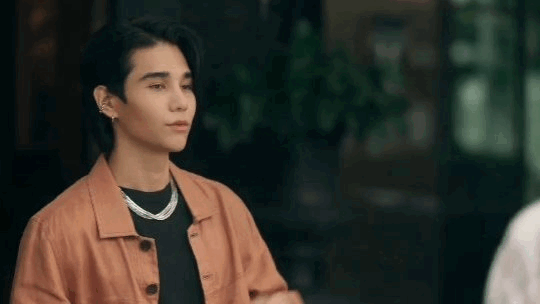
Kim's actor does a great job of showing how Kim maintains a veneer of cool aloofness when Chay confronts him, but is internally panicking. Kim is reckless, running into battle to save Chay in literally nothing but a tank top. When Chay calls him on who he is, Kim doesn't even try to defend himself. When he saves Chay again at Yok's bar, he makes sure Chay doesn't even notice.
Unlike Kinn and Vegas, who are too active and possessive, Kim is too passive and cowardly. He cuts himself off from people not because he doesn't love them--he clearly does--but because he feels like he's bad luck. Essentially, the same issue Chay has--that he feels like he brings bad luck.
But, that's not how life works. Human beings don't bring good or bad luck. It depends on choices, another theme from Vegaspete and Kinnporsche that wasn't delved into as deeply as it should have been. Still, choice is an integral part of being human, and the show does depict this.
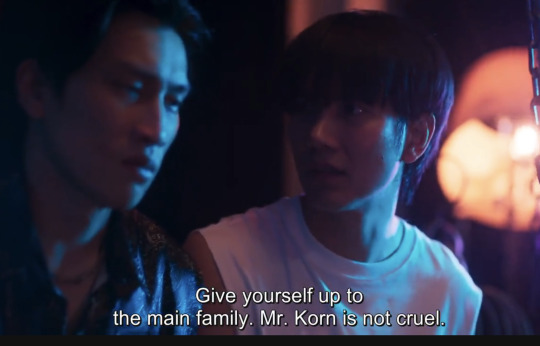
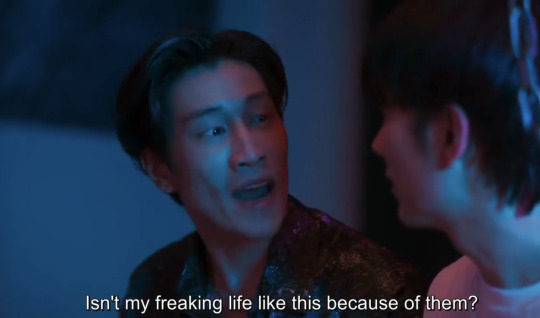
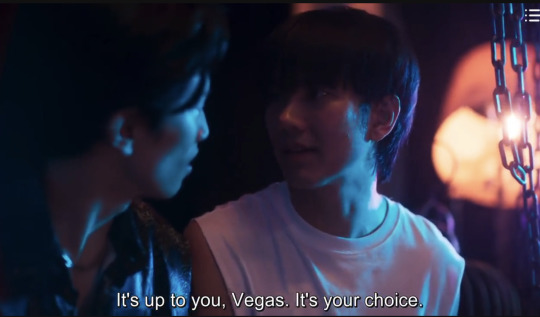
Still, it was a nice touch to literally have Kim wear a shirt with the word "human" on the front the same episode Pete insists "I'm a human, Vegas." Pete, of course, tells Vegas he has choices to make, and Vegas then tells Porsche that same thing in the final episode: that it's time to make a choice.
Anyways. The unfortunate thing is that the series didn't fully explore Kimchay in the same way they did Vegaspete. That's especially clear in the cliffhanger ending, though I think it was fairly clear that they were heading towards something positive. After all, Kim finally does something he needed to do: saying outright that he is singing for Porchay. Keep working, boy.
On a production level instead of narrative, I'm guessing the actor's ages may have played a role in them not fully exploring their story. Idk. I think the implications--the fade out with a way-too-dramatic kiss on the cheek that the fade obscured and them waking up together--were that they were sleeping together, but because of the actors' ages they clearly cannot and should not show that. But I wish the writers hadn't let that limit them--there are other ways to show growth and explore issues even if you can't directly use sex to do so. See, the sex scenes between Vegas and Pete and Kinn and Porsche were well done, and always had interesting meaning and commentary to them, which is great. I just wonder if they let the fact that they couldn't use this motif stifle their creativity when it came to exploring Kim and Chay's issues.
Tawan
Tawan's story was heartbreaking. He was a fairly well done, pathetic antagonist. When Vegas proposed to him, knowing tha the didn't love Tawan... that broke my heart. He was suicidal and his death ultimately foreshadowed what Vegas would later attempt to do.

But Tawan was desperate for love--truly desperate. He would do anything to be loved by Kinn, by Vegas, by anyone. But it wasn't really love for a specific person (as shown in how he switches from Kinn to Vegas) so much as that he wanted to feel safe in that love. Because denying love means denying safety, which sets him up as a good foil for Kim (who clearly thinks it's safer for your loved ones not to act like you love them)... but it wasn't ever explored.
Tawan's desperate love also foiled Chay. Yet unlike Tawan, and unlike Kim, Chay is able to express what he wants... and to assert himself when he's been disrespected and not seen as a full human being (Kim seeing him as just Porsche's brother is what breaks him).
Tankhun
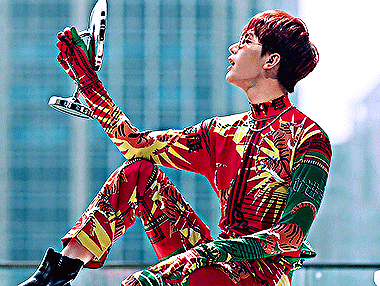
Tankhun was everything. I love him. I think they could have done more with him, especially around his relationships with his brothers. Like. We only see the three brothers--Kinn, Tankhun, and Kim--in the same room ONCE in the final episode. Once! A crime, a crime, I tell you! I know next to nothing about how all three of them feel about each other and interact with one another and I WANT IT!
Ahem.
Tankhun is still, in many ways, the beating heart of the series. He wears love and his feelings on his fabulous, colorful, patterned, and often feathered sleeves. He chooses to live how he wishes, but will do things for those he loves.
He's also always right, if you pay attention--he knows Gun is bad news, and he knows Pete is in danger while Kinn and Porsche are inexplicably dumb as hell for not suspecting Pete was in danger. When Pete reappears and Tankhun literally thinks he's a zombie, he still rushes to embrace him even so, just because he loves him.

Also, Tankhun is, much like Pete and Chay, fairly pure of heart. I don't mean that in a naive way, but it's clear Tankhun is somewhat childlike because of his trauma... yet, he's still the one who adopts fish and gives them names like Elizabeth and Sebastian and mourns them. He loves his siblings, and he welcomes Chay like a new brother.
The Little Mermaid reenactment with Porsche was A Lot, but also hilarious and fitting. See, he's childish, so of course he's going to like fairy tales. He knows the world isn't one, but he still enjoys ones and wants stories where the good ones don't die, and he does his best to live a fairy tale despite everything. I really think the series should have dug into this more, especially since Kinn and Porsche and especially Vegas and Pete are very clearly modeled after Beauty and the Beast. Sigh. The potential.
Not gonna lie, I think the brother relationships were somewhat failed all throughout. Macau and Vegas's bond wasn't fully explored either, and neither was Porsche and Chay's. Like, Porsche doesn't even know about Kim and Chay, and Chay had told him about being tutored by Wik, so... wouldn't he at least ask? Sigh.
Korn
So, ironically, the brotherly relationship best fleshed out is... Korn and Gun's.
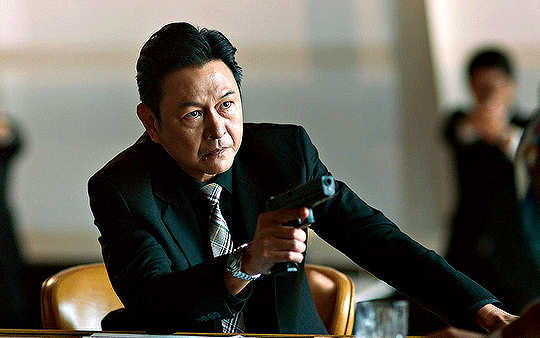
Theirs is highly tragic, and the relationship they have with their foster sister is also clearly a warning to Kim, Kinn, and Tankhun about what they could become if they prioritize the power of the mafia family over each other and their own rights to make their choices and live and love. It seems like that won't happen, given Kim and Chay and Porsche as the minor family head and Kinn, fortunately, but again I think this could have been more clearly explored.
Like, if love, both romantic and platonic and familial, offers a way forward, a potential answer (though no guarantee, see Tawan), which I think the show suggested, it should have been more heavy-handed in showing us. This also actually ties into the fairy tale motif, and the human being theme, and choice, and it just could have been so much more neatly braided together than it was. And also it works with the trust motif, because you can't control someone you trust.
I do really appreciate the ambiguity about Korn, and the uneasy lack of answers about what really happened between Korn, Gun, and Namphueng. On the one hand, Gun's utter cruelty to Vegas and Macau makes it seem more than plausible that he's the worst and he did assault Namphueng and kill her husband. On the other hand, seeing Korn murder Namphueng's husband would surely explain the vitriol he has towards Korn that seems unusually intense even for someone consumed with envy and jealousy.
I think it's clever that the series doesn't answer it for us. Even when Korn kills Gun in the end but chooses to tell his guards not to harm Vegas, despite the fact that Vegas just killed a bunch of his most loyal men, and promises to protect Vegas and Macau, we're left wondering. Is this proof that Korn is indeed the merciful man who would never have harmed Namphueng and her husband? Or is it the actions of a cruel man who killed his own brother and then told his kids not to worry because he'd provide for them, just like he did with Posrche and Chay?
Alas, what would have made this even more powerful would be an emphasis on what trust is supposed to mean... sigh.
Final Thoughts

Overall, I really enjoyed the show. I loved the characters and the three main ships. It had great ideas that could have been better explored.
Also of note: from its lighting to staging of certain scenes, it also clearly took inspiration from Queer as Folk, which is one of my favorite stories ever, and there were some potential Crime and Punishment references in Pete talking to Vegas in a scene that mimicked Sonia and Raskolnikov.
Basically, it was designed for me to fall for it, and fall for it I did. I just wish it had been refined, because it could have also been a masterpiece in addition to being entertaining (yes, really), but alas, didn't quite get there. Still, I'd definitely recommend it.
#kinnporsche#hamliet reviews#vegaspete#kimchay#vegas x pete#kinn theerapanyakul#kim theerapanyakul#kinnporsche tankhun#tankhun theerapanyakul#pete kp#kinnporsche meta#kp meta#pete saengtham#vegas theerapanyakul#korn theerapanyakul#gun theerapanyakul#porsche kittisawasd#porchay kittisawasd
142 notes
·
View notes
Text
It's A Boys' Love Story, Your Honor: Be Gay, Do Crimes
This review is often satirical and sometimes facetious. Or is it?
Anyways I got dragged into watching HIGH&LOW, a Japanese action show full of pretty boys punching each other. Aside from me wondering how all of them don't have CTE and screaming CHEST COMPRESSIONS when one character codes and the nurse like... walks away (he's ok the power of friendship is stronger than any defibrillator), it turned out to be a surprisingly excellent, enjoyable, and even poignant watch.
The plot is vibes at best and the narrative ideas are less formed than, say, those of Kinnporsche. But, what it does have down pat is characters. Pretty much every character is compelling from their introductory scene (except for the Mighty Warriors who exist purely to suck). The characters may not necessarily be the most complex or psychologically challenging, but they come across as intriguing enough, flawed enough, to carry series on their own. Like, I would honestly watch a full series based on any one of them.
To be honest, this show does more to establish who a character is, what they want, and make them interesting within a character's first 30 seconds than some high-brow directors do with three hours of film. I would honestly recommend it to anyone trying to understand how to characterize.

Also, it's basically a yaoi but with fighting instead of f*cking. It's just dripping in homoeroticism that they infuse with just enough plausible deniability that insecure straight guys can watch it too!
Although, being straight in this 'verse is pretty much a misery sentence for everyone except Kizzy and Kaito. I haven't seen such flagrant use of bury/break up your straights since Togashi.
But:

It's not a yaoi! you say.
To which I shall respond with numerous examples of what the f*ck is this then? The power of (b)romance?
Doubt. (Heh ifkyk.)
Cobra + Murayama
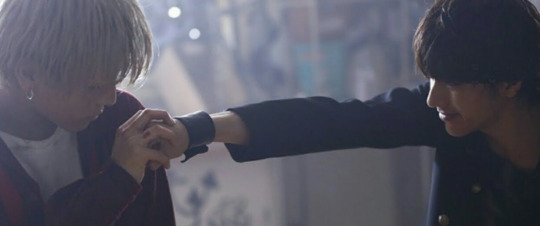
The same episode we get a girl having a crush on Murayama he's shown as completely disinterested because he's too hung up on Cobra. This leads to him seeking Cobra out. And also to him having realizations about himself. He's then kind to the girl, but not romantically interested. The framing of this Cobra-Murayama realization about himself with the episodes opening with a girl pining and ending with his kindness to her is clearly to get the audience thinking about romance and the other interactions in light of that.
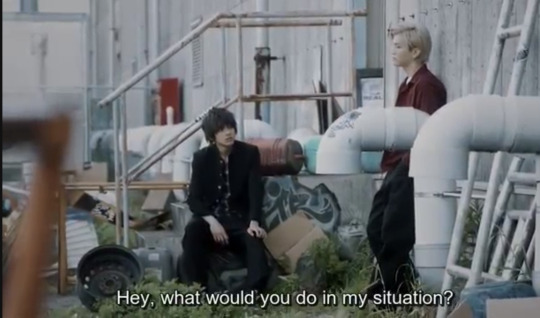
Murayama embarrassingly asks to join Cobra in front of all the other gangs.
Murayama calls him Cobra-chan and sides with Cobra when all the other leaders of SWORD refuse. All three others have left but Murayama still tells Cobra he has his vote, even though it's not going to do anything, just so Cobra knows Murayama's on his side.
In End of Sky Murayama literally going behind Cobra's back to get Hyuga to agree to join Cobra's alliance to protect him, at personal risk to Murayama, even though Cobra will never know what he did for him, when even those most loyal to Cobra have abandoned him, is literally a romance trope as old as time. And it's literally set to inspirational music.
Murayama calls him Cobra-chan and sides with Cobra when all the other leaders of SWORD refuse. All three others have left but Murayama still tells Cobra he has his vote, even though it's not going to do anything, just so Cobra knows Murayama's on his side.
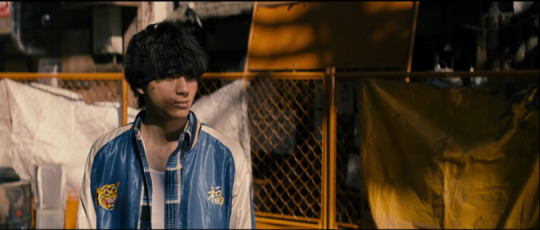
At the end of the movies, Murayama gets a motorcycle and is implied to join Sannoh eventually with clever color symbolism as @eatprayworm points out.
As if we didn't get it, The Worst literally shows us Murayama calling Cobra-chan on his phone and tells us that he frequently drunk calls Cobra by having him say that he's not calling about bikes... this time. This phone call shows 0 narrative purpose besides reminding us that Murayama's endgame is with Cobra.
Chiharu + Yamato

Yamato saves his life and then is told he has to "take responsibility for" Chiharu, which is totally not a reference to the common idea of a guy taking responsibility for knocking a girl up--
except it is explicitly because even Yamato's mom directly asks if he knocked someone up when she hears that he has to "take responsibility" for someone.
When they finally reconcile after Chiharu confesses to drugs Tetsu tells them "you look good together."
Chiharu then takes a bullet for Yamato. I mean, not actually, because it was a blank, but no one, not even the person firing the gun, knew it was a blank.
Tetsu + Dan
Whenever Dan expresses interest in a girl Tetsu gets mad at him and when Tetsu cuts off his dreads to be more appealing to girls Dan gets mad at him. They're in love your honor.
They'll leave a gang for one another.
They exist only in proximity with each other.
Tatsuya/Kohaku/Tsukumo
These old men are so gay. They started the fall. And by old I mean they're supposed to be like 26 but they are clearly played by actors in their mid-40s and so I'll just pack off and head to the Villages then.
Smok(e)y + Hiroto

Ah yes when you're wandering around Nameless Street looking for your older brother and he's not there so you and your other brother decide to leave but then! then! a sickly man wasting away everywhere but his hair (which remains luscious) walks in front of you, barely glances at you, and you instantaneously walk away from your brother and your life to go follow the twink. Much straight.
Rocky + Koo
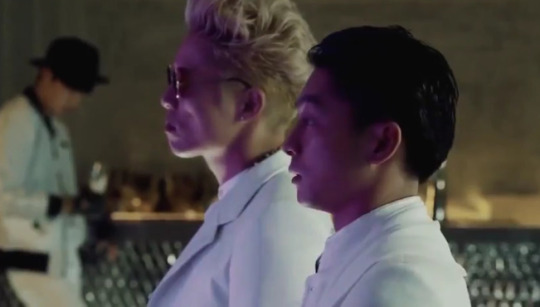
Here.
They also use "anata" for one another. Which means "you," but also is frequently translated as "dear" because it's what married couples often refer to each other as.
The manga also implies they live together.
Yasushi + Kiyoshi
Everyone in canon refers to them as "Yasukiyo." They exist in a state of symbiosis with weird hair and insanity.
If anyone implies Yasushi was involved with drugs Kiyoshi will fight to defend his honor.
"He sacrificed himself for me!" ?????? That's a love trope, Your Honor. Don't worry, though. They're gay, so Kiyoshi survives his sacrifice.
Odajima + Todoroki
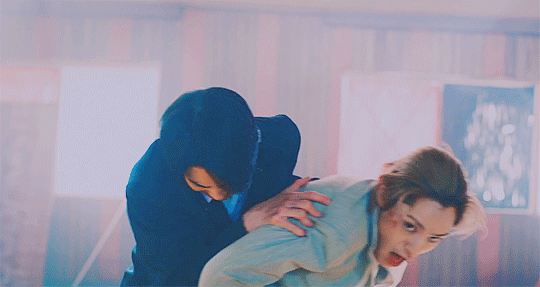
Fellas is it gay to spot a man across a battlefield and be so in awe you run over to him right away?
Is it gay if you then ask said man "you're different from the others. Want to play with me?"
Tsukasa + Fujio

Tsukasa mopes around like Bella after Edward left after Fujio moves away for like a week.
Tsukasa takes a bus ride across the country for the chance to fight his BFF again in the rain (wet, what is symbolism) and then tells him "I'll be waiting for you." And also "I should move here because it's boring without you."

Tsukasa might be held as a hostage but he knows Fujio will come for him. In fact his relationship with Fujio is explicitly paralleled with Amagai and Suzaki's.
Amagai + Suzaki

The redemptive power of love, as beautifully written by @eatprayworm here.
I mean Suzaki literally can barely stand and limps over to protect Amagai when Amagai is experiencing the consequences of his actions and then saves Amagai from himself.
At the end of the day all he wants is to be boyfriends with Amagai.

Probably my favorite ship because it's everything I love, meaning one of them is too good for this world and one is a bastard.
Nakagoshi + Nakaoka

Nakagoshi sacrifices himself for Nakaoka even in a parallel to Yasushi and Kiyoshi (don't worry, they're gay, so they live too).
Tsuji + Shibaaan

Do I even need to comment here?
And I didn't even get into Sachio's sunset conversation with Fujio, in which you visibly see the twink fall and then they, not knowing who the other is, subsequently meet and recognized each other on the battlefield like Mr and Mrs Smith.
Themes Too!
High&Low isn't exactly an uber-deep thematic exploration of what it means to be gay and do crimes, but the themes it does do it does pretty well.
One of those is indeed the redemptive power of love, which involves being seen and known. Y'know, that mortifying ordeal. Because love itself leads to freedom. It's true for Chiharu, it's true for Noboru, it's true for Arata.
Rocky and Kizzy/Kaito's story is kind of one of the best examples of the redeeming power of (platonic) love leading to freedom, and it takes like... 3 minutes? of the story. And it's not left unexplored; it's just succinct. Kizzy and Kaito are trafficking women and Rocky comes to stop them, and when fighting, notices that Kizzy is actually a transwoman. He stops the fight and says that he doesn't fight women. That's enough for Kizzy and Kaito to follow Rocky, giving up their life of cruel crime and atoning--truly atoning--by spending the rest of their lives doing exactly the opposite of their crimes: fighting to free women from traffickers and protect them.
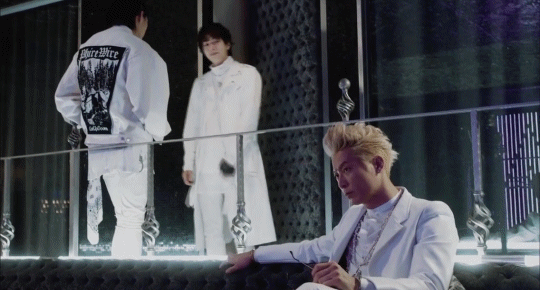
The significance of that moment is that by seeing Kizzy as she really was, Rocky pointed out to Kizzy that she was engaging in self-harm, keeping herself trapped (symbolically) and never able to live as she could. But for Kizzy, to be truly free to be herself means helping other women also be free. It's also, even if unintentional, a good twist on the transphobic trope and conservative talking point of a transwoman trying to harm women (cough, she who shall not be named).
Kizzy also never styles herself super feminine even after gender confirmation surgery (as implied by Rocky that she received), but she still is a woman, and her being herself leads to redemption and freedom for everyone around her. We stan Kizzy and her loyal boyfriend (husband?) Kaito in this house.

Another theme, and connected to the idea of self-discovery and freedom and love and all that, is how to handle the past, a question everyone is always asking because as long as we're alive, we're evolving. Obviously we see that with the Amamiya brothers and the Mugen backstory, and we also see that in the present with Murayama and Todoroki. But we also see this most sharply highlighted in the conflict between Cain and Smokey.
Cain is not subtly named after the first murderer in the Bible, who kills his brother. Cain, of course, kills Smokey in cold blood, with Smokey asking him "did you come here to kill me?" and Cain affirming that he did indeed because if he doesn't, he won't be able to completely erase his past.
But the thing is, you can't kill your past without killing yourself. You have to embrace it and let it live. And something as precious as a life won't be so easily destroyed. To live, you have to live with all of yourself, the past and the present and the hope of a future. It's a struggle, it's a fight--but with people beside you, it's worth it. Almost like the fights in the series are a metaphor for struggling through life or something.
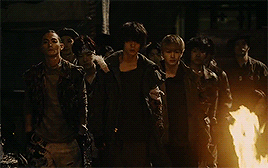
And then we have gentrification. Let's just say the horrors of it are not exaggerated. Smokey's death--and life--offer poignant social commentary on what happens when people treat others like they don't deserve to live, like they are forgotten, like they don't exist. Because they do exist, because they love.
When Cain kills Smokey, Smokey tells him--in all sincerity, despite being abandoned by his parents, living in a homeless slum, and being terminally ill his entire life because the rich poisoned the people in the slum--that he lived "the best life." Why? Because the scenes flash back to him meeting his adopted sister Lala, caring for Eri, meeting his gang. He had a family, and he loved them, and they loved him. When he dies, he's buried in that same slum and Takeshi comments that "to Smokey, this [place] is heaven." And it is, because heaven is love.
(Also, the "rich poisoning people by being careless because these people don't matter" is hardly unrealistic. Bhopal would like a word with you, Dow Inc, you sh*theads.)
In Conclusion
Things you'll have to endure: multiple Mighty Warrior music videos.
Things you get to enjoy: Hyuga being a Barbie girl in a Barbie world who shows up to fights with all the Durama Ikka and planned choreography and bespoke songs.

Things you get to enjoy: multiple twinks needing rescue from being dragged into the drug trade to save their loved ones only to get whumped in true hurt/comfort fanfic fashion before sobbing in the arms of their friends who welcome them home.
Things you have to endure: Noboru trying to convince Cobra et al to join the Mojo Dojo Casa House Kuryu Group.
Things you get to enjoy: The power of friendship saving Noboru from himself, Rocky from dying alone, Smokey from having no meaning to his life, Amagai from himself, Murayama from himself, Todoroki from himself, Arata from himself, setting captives free, and rich bastards who trod all over the poor getting what they deserve.
Things you have to just not think too hard about: gangs seeing drugs as the biggest taboo which I'm pretty sure is not usually the case but hey, hoodlums have standards, and also the evil guys keeping their secrets in a folder literally stamped with the label TOP SECRET.
Things you have to endure: Smokey dying. I'm not over it. Someone fight me to bring him back. But also it's one of the most beautiful death scenes in fiction.

Things you get to enjoy: Generally no one, unless you're Smokey, straight (Takeru), or yakuza (no one cares).
Things you have to ignore: why no one ever studies at these high schools and why they all look like they're in their 30s-40s.
Things you get to enjoy: pretty great rep of a trans woman that directly counters some of the most harmful tropes.
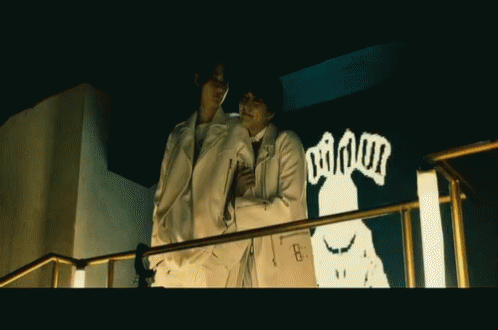
Things you have to endure: Noboru being resurrected by the power of True Love's Handholding, because the nurse literally RAN AWAY from a coding patient to "get the doctor" but it's okay, his friends beg him to live and he does.
Things you get to enjoy: a series that founds its premise in action and violence that offers a surprisingly wholesome, kind message on relationships, humanity, redemption, and love... whether that love is platonic or romantic.
But, I mean, Final Mission literally ends with the gangs defeating the evil corporation with a rainbow-colored smoke that takes over the sky of the city. So it's gay.
#hamliet reviews#high&low#high & low#cobramura#cobra#murayama yoshiki#amagai kohei#suzaki ryo#amazaki#hyuga norihisa#smoky#amamiya hiroto#hanaoka fujio#tsukasa takajo#chiharu#yamoto#dan#tetsu#rocky#rockoo#kizzy#kaito#noboru#sannoh hoodlum squad#oya high#white rascals#daruma ikka#rude boys#todoroki yosuke#odajima yuken
75 notes
·
View notes
Text
"Pet": Pretty Woman, But Gay
So I read the Captive Prince series way back in like, 2016, and read the first few short stories and never read the fourth one because I wasn't a fan of the character it would focus on. And then through a weird set of circumstances I found myself reading this short story this past week, and it might be one of my favorite short stories ever.
I'm posting under a cut because the series is very adult, and the short story and series itself contain triggering content.
Ancel is definitely a favorite character of all time now, which is impressive especially since I hated him. But that's kind of what CS Pacat does well--she writes unlikable characters who are indeed truly flawed and not just soft babies inside, and then makes you like them by showing their development without completely changing who they are as characters. It was the main strength of the original Captive Prince trilogy, after all--Laurent's development still remains one of my favorite character arcs of all time.
So really, I don't know why I was shocked at what she did with Ancel. Especially because the whole reason I hated Ancel was the same incident that made me dislike Laurent: a scene in which Laurent uses Ancel to sexually assaults Damen. And I still do think that particular scene is the biggest flaw in the series, because it's kind of glossed over in a lot of ways. Admittedly, that's still the biggest flaw of "Pet" as a story, too: that the story frames Ancel's low moral point as what he does to Erasmus, which is portrayed as an escalation of what he does to Damen, when I'd argue it's the opposite.
Yet, seeing things from Ancel's perspective--how desperate he is to matter, how he genuinely has only ever been used and so doesn't understand why other slaves wouldn't even try to perform and enjoy the meager scraps of joy they get in life--changed my perspective on him. Not on the incident, but on him.
Ancel's a brilliantly written unreliable narrator, too. As confident and vain as he seems, he's all too aware that he doesn't matter in the court. As much as he hates Damen and Erasmus for the former's refusal and the latter's inability to play the role, it's really self-hatred projected onto them. We see bits and pieces of this seeping through in his conversations with Berenger, such as him telling Berenger in a moment of delight:
"I'd even sleep with you. I might even enjoy it for once." He stopped.
"High praise," Berenger said dryly.
Ancel doesn't enjoy a lot of his life. But he'd never admit it, because he lacks control over pretty much every aspect of his life and so seeks to keep control over his thoughts by lying to himself. And yet, paradoxically, he's still one of the few people at court who is usually honest with others.
All of this is why Berenger is such a great love interest for Ancel. Berenger prizes honesty, but also freedom. He buys Ancel but refuses to sleep with him because he knows Ancel doesn't really want to, no matter what sweet nothings Ancel whispers in his ear. He respects Ancel's autonomy in ways no one else ever has, and he sees him as a person first and foremost.
Normally stoic "good guys" aren't super interesting as love interests for me. I like angsty tortured souls, Byronic bastards. But Berenger works perfectly in the story, and is no less interesting as a character than Ancel. To be fair, part of this is because everyone in Vere is insane and debauched and there needs to be one normal one there, and that's Berenger. Yet there's intrigue, too: why Berenger bid so highly to buy Ancel in the first place is never directly stated, but what he does say is that Ancel:
You took on every councilor in that room and won.
It wasn't the physical performance, but Ancel himself, his psychological performance. It serves as a metaphor for the overarching plot of the Captive Prince series, wherein the lowly and those who have everything against them end up taking on far more powerful individuals and systems and winning.
Which makes the last line of the story all the more fitting:
But if he wins?
Ancel may not be a pure-hearted individual, but all along he's showing Berenger that it is possible for those who have less to win, and to be loved and give love. He gives Berenger hope for the future, for the coming coup. And as we all know, Laurent does win, and I can only presume Ancel and Berenger live happily ever after.
My second complaint about the series is that the ending is too abrupt even if the ending line is perfect because that's my complaint about the trilogy too.
#captive prince#berencel#ancel#berenger#cs pacat#hamliet reviews#captive prince meta#captive prince pet
39 notes
·
View notes
Text
What I've Been Watching
It's been a crazy, crazy month for me, so I've not been here very much, but wanted to post a couple quick reviews of things I've been watching lately!
Blue Samurai

Unsurprisingly, I love it. Fabulous, top-notch female characters, a completely unashamed approach to sexuality, and best of all, enemies to lovers!
Mizu and Taigen are definitely the core of the story, and I'm looking forward to how their relationship will develop. I lost track of how many times Mizu and Taigen had metaphorical sex, the fire/water imagery, the way one of them would bleed after their encounters, the way they can bring out the absolute best in each other (Taigen associates Mizu with honor, but his honor is tied to her living, not defeating her; likewise, while Mizu associates Taigen with childhood bullying and trauma, he's often the one offering her moral guidance and who sees value in her life that she doesn't even see in herself), and the way they can bring out the worst in each other too. Ship of dreams.
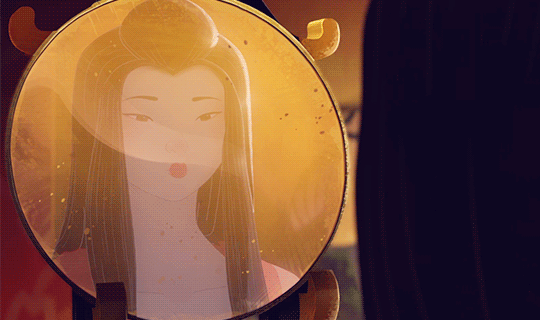
I think Akemi is my favorite character, although I also love Ringo. Akemi works as an excellent foil to Mizu, in that they have completely different approaches to femininity. Mizu denies sexuality completely and pretends to be a man, while Akemi uses sex and people's perceptions of her as a woman as a weapon. Mizu is physically strong, but Akemi is beyond intelligent and gifted in politics. Akemi and Mizu both end the season with their father figures as their hostages, and clearly the implication is that this isn't good for either of them. They risk becoming like these father figures--overly cruel and violent for Mizu, scheming and cold for Akemi.
That said, I doubt they will. It seems clear to me that Ringo and Akemi will choose to be great in the end, while Mizu and Teigen should choose normal lives with each other. Akemi will probably end as shogun.
Demon Slayer

Finally, I caved. I've started the second season so this is by no means complete. I quite like Zenitsu and Inosuke's characters. Tanjiro is a bit standard for a protagonist, but I like him well enough--he's not offputting, at least. I wish Nezuko got more to do.
I do like how the Hashira are framed so far. It's got potentially interesting things to say about religious-like groupings that unquestioningly follow after a leader who may or may not have their best interest at heart but whom also probably believes he's doing the right thing.
Rewatching: RWBY and High&Low
Nothing to say at this point but be prepared for more annoying posts about these two series I love.
If Warner Bros doesn't greenlight Volume 10 because David Zaslav hates everything about storytelling and art to its core and only wants to sell his company to Paramount or something, I'm going to flip my sh*t.
For H&L, I also named my new cat Smokey. So.
35 notes
·
View notes
Text
Never Have I Ever... Been So Grateful For a Show
Well, NHIE finished strong after the fourth season got off to a rocky start. The first three episodes were... messy, honestly, but then the story picked up steam. By the time we got to the final two episodes I was bawling pretty much the full way through.
NHIE also continued to flex its mature understanding of nuance, its appreciation for cultural differences, and its determination to keep its characters flawed and realistic. And including a game of Never Have I Ever in the finale? Fab.
All in all, it's a great ending to a great show. I loved it.
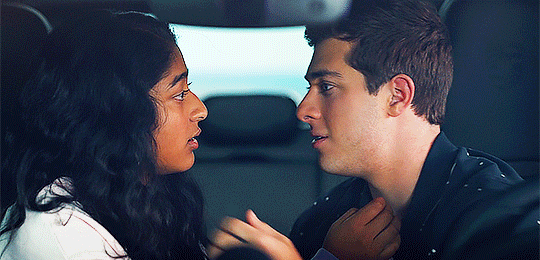
Ben and Devi
I've seen people complaining that the end relationship was predictable, or that Devi should be single, and kindly: no. <3
It fit Devi's character to end up in romantic love with someone, because the entire show has been about love for her. Love for her family, love for those who have died, love for her friends, love for her mentors, and yes, romantic love in all the aspects that entails (physical, intellectual, emotional).
The other thing that I think is beautiful about their relationship is that they both push each other in all these ways--physical (obviously), emotionally (Ben's final realization in New York was chef's kiss), and intellectual. They both get to go to their dream schools in part because of each other. Not only have they been pushing each other to excel since before the show started, but Devi helps Ben finish his schoolwork, and Ben encourages Devi to write that final letter to get into Princeton.
Ben's early acceptance to Columbia, which seemed a given given, well, his father and nepotism (I appreciated the show behind upfront about this), ultimately still almost gets sabotaged by his own repressing of other aspects of his life (which parallels Paxton, Blair Quan, and more, and isn't exactly new--see Ben's physical issues last season). This contrasts him with Devi, whose self-sabotage is always doing too much too suddenly. She's been trying so hard all along, but sometimes you need a final cheer to push you over the finish line.

Ben and Devi, Ethan and Margot
Ethan is dark!Ben. Margot is dark!Devi. On paper it's great.
Except... Margot was really, really annoying. I'm sorry, I found nothing remotely redeeming about her. Ethan at least served a purpose. The reason I think the first three episodes are so rough is that they focus on Margot but seem to not know what to do with her. But more about that later on.
Ben's speech about why he chooses to be with Margot in the first episode is well done and shows how much growth he still has to do. Because an essential part of love--of a mature kind of love and relationship--is that you are challenged to become a better version of yourself. Ben and Trent, in episode 2, shy away from this. Trent breaks up with Eleanor because he's afraid she'll break up with him, and he wants to do it first. Ben stays with Margot because she offers him superficial challenges, but nothing substantial in terms of his flaws.
That said, Devi making peace with Margot (numerous times) was narratively necessary because, of course, Margot's kind of a literary shadow (just not really well done). It also showed how much Devi's grown.
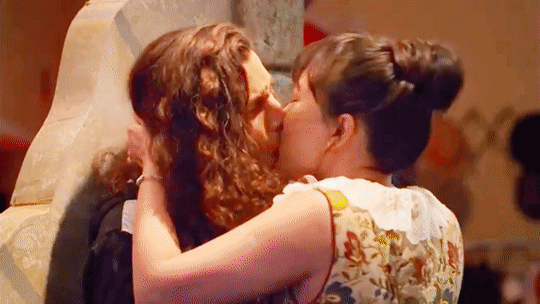
Trent + Eleanor
Trent's character is also really well done. That's how you deepen a comedic character. (Ethan was also dark!Trent in some ways; hence, Eleanor's crush on him.) Yeah, Trent's a stoner and not so bright. But, he loves Eleanor. He adores her, and he wholeheartedly believes in her. It's heartwarming to see.
I wasn't surprised they broke up early on, but was relieved they got back together. I think it was a funny inversion of what you'd expect, because El moving on to bigger and better things seemed like a natural progression. Yet, as the scene with El's mom showed... that's not what bigger and better is for Eleanor.
Yes, Eleanor still wants to grow. Yes, she still wants to be an actress and a director, and she's good at it.
But she doesn't want to leave her family and loved ones behind.
Eleanor knows what it's like to be left behind. And obviously it's not the same to leave a teenage boyfriend as to leave your own child like her mom. But, Eleanor ending up back with Trent was, frankly, narratively perfect for both their characters. Because Trent was helping her in her growth, and always had been from Season 3.
I also think they handled Eleanor's dreams and her complicated mother relationship well. The dream itself, even if it is far-fetched, even if it is unlikely to happen, is not bad. Pursuing it also is, in fact, positive (they paralleled this with Devi's dreams of Princeton). But, one of the best parts of dreams? Is the people you meet along the way, the people who cheer you on. It's a metaphor for life.
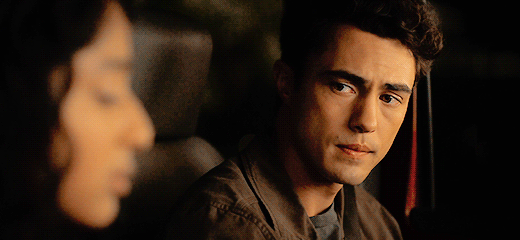
Paxton (and Lindsay)
Paxton's arc I think is one of the best in the series. I loved his journey from boy who was considered "hot guy" who sucked at school to the point where it was comic becoming a teacher. The episode where he helped Eric join the swim team was actually really powerful.
And, I didn't even roll my eyes when Devi told him he was an even better friend than boyfriend. On paper it's a cliche line, but it totally works within the characters' arcs (and of course the actors' portrayals!). Lindsay also seemed like much more than just a consolation prize to the guy who ends up outside the triangle--their relationship paralleled his with Devi, and quickly got me invested.
His final advice to Devi: "don't reinvent anything" also fits really well, because when Paxton at first refused to be Devi's boyfriend it was because Devi's image wasn't acceptable after the two-timing thing. Then, Devi's anxiety during their public relationship, the anxiety that actually ruined their romance, was because she didn't think she fit with Paxton or "made any sense" with him. But, she does fit with him. As a friend, and as herself.
Blair Quan + College
Blair Quan was also dark!Paxton--someone who lost themselves because they were always the Best in high school. The best student, the most popular. And then at college, everyone was the Best. And suddenly you're nothing.
The situation with Blair Quan was really realistic for how college can be for people, and in how the show (admittedly briefly) addressed the fundamental unfairness of college admissions. I work in higher ed, and... it's not fair. Nothing about it is fair. Professor Warner telling Devi outright that she "should have" gotten into all the Ivies actually meant a lot to me, because it's true.
For any readers of this who are applying to schools, there's a degree to which your merit matters, and there's a degree to which it's up to sheer luck. If they reject you, it's almost certainly not because you're not on par with other applicants. Hard work does not get you into prestigious schools. That's a lie. It gets you to a point, but it also gets a lot of other people to that same point, and then there is nothing at all you can do. It's up to luck.

Fab (and Addison. Kind of).
Fab's arc was interesting, but I feel like it peaked in season 2. I did like her conflict this season though, particularly with messing up about lying to Devi. The scene where she and Devi reconcile was beautiful, and the show handled it really well--giving empathy for Fab as for why she kept it a secret, while also pointing out that the lying was the fact greater problem than the initial applying.
The negative is that... I like Addison, but I wanted more. It kind of sucks that the queer character is the one whose romance doesn't come with two complex characters getting development. And sure, Fab isn't as important as Devi, Ben, or Paxton, but the fact that they wrote a compelling romance between Trent and Eleanor and gave Trent some damn deep character development despite him being a comedic character shows they were more than capable of writing a complex character romance for Fab. Addison is really just... kinda there, and we get no development for them at all. Which sucks because I would like to have learned more about them! They had potential, especially as a parallel to Trent!
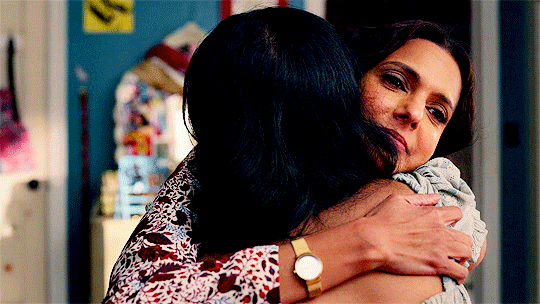
Nalini and Andres
Nalini and Andres were a little more out of left field... that said, Nalini clearly has a type! She likes guys whom she argues with first. I still preferred the hot doctor from Season 2, but that had less to do with Andres and more to do with the fact that I found Margot so irredeemably annoying. Still, I appreciated Andres' growth in realizing that he'd been spoiling Margot by catering to her every whim. This was itself a nice contrast to Nalini, who hurts Devi by being too hard on her.
That was especially a flaw in the early seasons, but Season 4 really showed how much Nalini has grown. She does mess up with her response to the college debacle, so her flaws are still there, but she's so much better than in Season 1. For example, Devi lashing out at her mom after she got deferred was irrational; Nalini really didn't deserve any of that, and yet Nalini still met Devi where she was at: with a chip salad, addressing her fears. It was heartwarming.
Even when Nalini then does mess up with the "stupid" comment, we know she didn't mean it in the same way Devi fears she did (that that's all she can be, rather than that yes, Devi did a dumb thing). When she comes to help Devi pack, it's genuinely heartwarming. I honestly think Nalini and Devi's relationship is one of the best in the show, if not the beating heart at the center of it.
Pati and Len
Now, Pati. Pati and Lens' relationship parallels Kamala's romantic drama--not just with Manish in Season 3, but also with Steve in Season 1. Pati is also very clearly where Devi gets her drama from, and I stan.
I also liked the parallels between Len and Pati and Ben and Devi. They are both Indian-Jewish couples, and Pati and Len's wedding of course marks a grand romance for them... and a grand romantic gesture for Ben, who arrives to tell Devi he loves her.
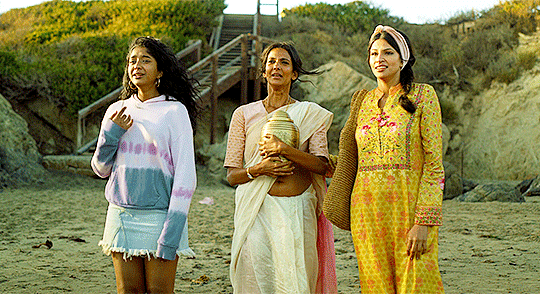
Kamala (and Manish)
Kamala's arc this season was good as well; I just wish we had seen more Manish than just in the finale. Still, at least Manish did have an arc in the previous season. Though, it was a nice twist to have Kamala's arc be not about romance, but about her career.
Where Art Thou?
I also missed some other side characters, like Rebecca Hall-Yoshida and Jonah.
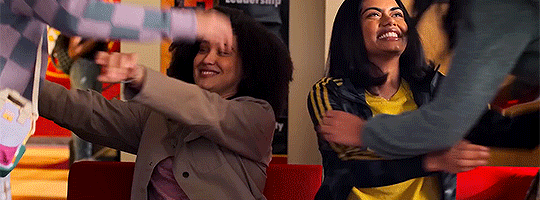
Margot & Aneesa
The overall show was filled with callbacks to past seasons that were really well utilized, in that they showed the character's growth. Unfortunately, in one instance, this came back for the worse when they repeated one of their biggest writing mistakes from Season 2.
Devi is, simply put, absolutely not morally responsible for reporting Margot to have lied about her alibi for vandalism. Yeah, Margot ultimately didn't do it--but Devi didn't do anything wrong by reporting that. In fact, the principal should have actually done her job and checked the alibi with the teacher; it's like 101 common sense.
Clearly this is a callback to Aneesa (the episode even has Devi reclaiming the nickname "crazy Devi," which started there). However, the shame is that the writers didn't learn from how they bungled the Aneesa plotline, and they did. Here again they hold Devi responsible for something she frankly is not morally in the wrong for. The show also mentions the Aneesa incident and calls Devi "a liar and a bully" for it, but she objectively didn't lie? And frankly Aneesa bullied Devi more than Devi bullied her and was never called out for it.
While I think it's a flaw, it COULD theoretically work from a psychoanalytic theory in that really all that Devi can control is herself. She can't force others to do what she wants, even if it's unfair. And that's part of maturing is realizing that (and it's not the same thing as selfish focus). You can't control the world, even when it's unfair and even when other people are frankly wrong.
I did like more or less how Margot was resolved in the end; namely, that she was not there among Devi's friends at the end. I also liked that Aneesa did defend Devi in the final episode from someone mocking her about the Clean Sweep. It just would've matter more if Aneesa's actions had ever been addressed.
The Principal + Professor Warner
Also, while in general the show is great in its portrayal of teachers and satire of other teachers, the principal sucks and she's not actually funny. She acts like another teenager, but unlike some of the other teachers/adults who are framed well, she's framed as being more or less fine instead of with the critical lens of the others. And she isn't.
Professor Warner stands in stark contrast, because she is wise even though flawed. The principal is just... awful. I'd never liked her, but this season made me hate her.
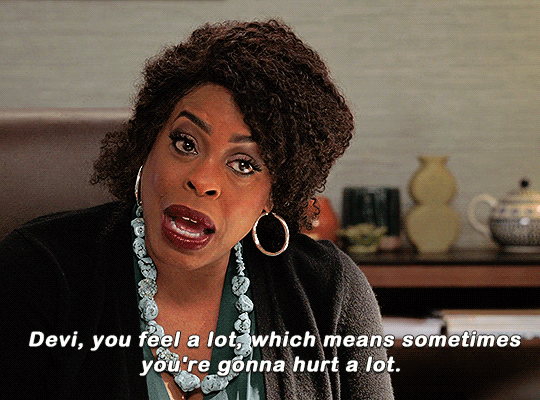
The Therapist + Grief
Now that I've gotten my salt out of the way, let's end with a positive and a theme.
The therapist's final session with Devi in the penultimate episode--I bawled.
“When I first met you, you were a closed-off, angry little thing... But look at you. Look how far you’ve come. You faced your trauma, and you came out on the other side.”
They used this to emphasize the show's main theme: grief. Despite how this quote makes it sound, the show doesn't actually frame grief as something to move on from. Instead, it's something that accompanies you.
Grief is like chasing a dream. Grief is part of life. It is love itself, but a painful part of it, and grief never, ever stops. You never "get over" someone's loss. You never stop loving them.
But, you learn to see them around you, and in you. In the dreams you planted together, like Devi's dad telling her about Princeton. In the loved ones you shared, like how Devi yells at her imagination of her father that he's not here, but then Nalini arrives to help her pack.
Just because someone's gone doesn't mean they stop influencing you, or stop being a part of your life.
There will always be moments of pain, like Devi in the final episode with the imagination of her dad. But, there will also be moments of feeling them again.
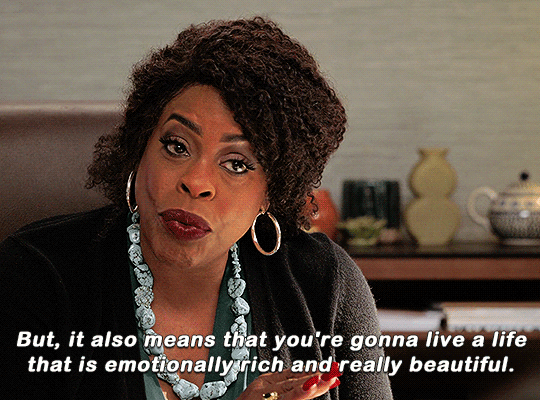
#nhie#never have i ever#nhie season 4#devi vishwakumar#paxton hall yoshida#ben gross#ben x devi#bevi#bendevi#fabiola torres#eleanor wong#trent harrison#eleanor x trent#hamliet reviews#nalini vishwakumar#kamala nandiwadal#manish kulkarni#nhie finale#nhie netflix#nhie review#nhie 4
128 notes
·
View notes
Text
The Best Modern Romeo + Juliet
...is a subplot in The Wizards of Waverly Place. Yeah, the Disney show. I said it. In a time where Florida's taking Romeo and Juliet out of schools, we need this.
It's the only adaptation I've seen in modern day that has Juliet's personality right--her feisty, dreamy, and determined self. I was watching the whole thing going:
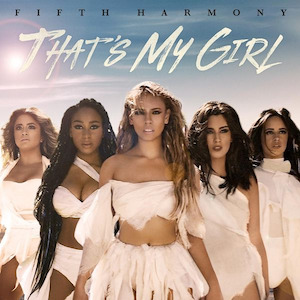
Juliet is strong! And smart! And funny! and Romeo is adorable and adorkable and sappy but sincere! The plot might seem obvious--a feud between vampires and wizards--but it turns out to be so much more mundane. The families hate each other because their sandwich rivals are business rivals.
Of course, in the end Justin and Juliet's love for one another enables the Russos and van Heusens to lay down their wands and put away their fangs. The way in which this happens, though, is very funnily told.
But the references and commitment to Romeo and Juliet continue even after the original subplot episodes! In fact, the story ends up almost told in reverse, which is amusing.
See, first Juliet gets trapped with Justin in a museum when the sun starts to rise. Since she'll crisp up if that happens, Justin directs her to allow herself to be controlled by the mummy, since he can take her out of the museum before she broils. He promises to come back for her. Except, after Juliet agrees and leaves with the mummy, Alex arrives to save the day. tl;dr, if Justin had waited a moment, Juliet would not have had to go with the mummy. This is a clear reference to both Romeo and Juliet's flaws in the original play (although, can you call it a flaw when they're both at great risk of dying because their city streets are basically a war zone), and also to the fact that if Romeo had just waited five more minutes before drinking the poison, Juliet would have woken up and they would have escaped.
In the original play, Juliet is encased in her family tomb. Where does the mummy take Wizards!Juliet? His tomb, where he encases her in stone. Justin eventually rescues her with Alex and Mason's help, only for things to then go very wrong, but hey, romance always stumbles in Act 2.
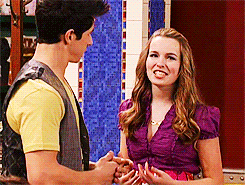
While Juliet is off looking her real age of like, over a thousand years old, Justin tries to move on with varying success. The one he most obvious falls for is Rosie... a reference to Romeo's first love interest, Rosaline.
In the play, Rosaline does not exist to show that Romeo is actually flaky, as cynical modern interpretations assert. Instead, Rosaline exists to be the stereotype of a passive woman. She's a direct parody of Petrarch's Laura, or Dante's Beatrice--both women whom they literally deify as spiritual guides in their poems, but in Petrarch's case he never even spoke to Laura (yeah. yeah.) and Dante never made a move on Beatrice. But their literary works hold this up as holy, because a woman who has sex? Even in matrimony? Less desirable. Less holy. The point of Romeo and Juliet is that Juliet is very human and never "less" because she marries and has sex with Romeo.
Romeo's poetry for Rosaline is deliberately cringey and uses the worst cliches of Shakespeare's time. You're supposed to groan. But Romeo's sonnet at the end of Act 1 is created with Juliet. She's literally saying a couplet, and then he says one, and so on. The poetry when Romeo speaks to and of Juliet was, in Shakespeare's day, incredibly original and stunning. In other words you're supposed to see Rosaline as Romeo being in love with love, and Juliet as the fruition of this.
Anyways. Back to Wizards. Rosie is an angel. Rosaline in the play swears herself to perpetual virginity in a holy vow (but is not a nun, so yes, Shakespeare is pointing at this like "u sure girl?"). Justin's love for Rosie is an infatuation, not real love as it is with Juliet. She's able to quickly manipulate him into bargaining with the devil to destroy the entire world because Rosie became a fallen angel. However, Rosie eventually realizes she loves Justin, truly, and that helps convince her to save Justin from himself and to move back to heaven, where she'll be his guardian angel.
Even though it's told in reverse, this entire arc references the main theme of Romeo and Juliet as a play: being human is good, and love redeems and saves the world. Even though Romeo and Juliet die, their love saves Verona. Rosie's love for Justin might not be requited, but because of it she helps Alex save the world. That she fell from heaven and found love makes her a better guardian angel in the end, not a worse one.
In the end, Juliet reunites with Justin after she's been brainwashed by said devil character, Gorog, which calls back both to the Mummy's mind control and to Justin's and Rosie's story. When Justin, Alex, and Max defeat Gorog, the spell breaks. Juliet expresses horror at what she's done and begs for forgiveness--only to find out that Justin doesn't want her to beg for it. She doesn't need to. She's there, and that's all that matters.
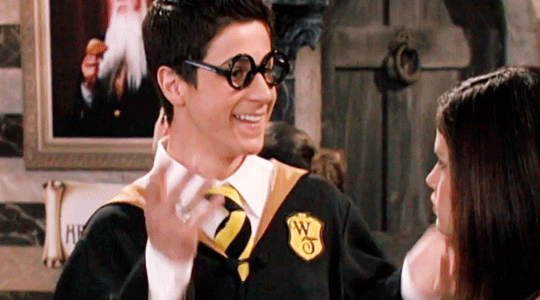
Okay, even besides the Romeo and Juliet arc, The Wizards of Waverly Place is pretty good for a kid's show. It's got very clever moments, and it's clearly a satire that pokes fun at Harry Potter, Twilight, Beauty and the Beast (Alex and Mason), Romeo and Juliet, Cinderella, The Mummy, Night at the Museum, Back to the Future, and more. But you can tell the writers are doing this because they love the original stories, not out of mean-spirited cynicism. It's self-aware without breaking the suspension of disbelief for viewers.
Said suspension of disbelief mostly comes from the characters, who are very well done and have good arcs. Alex and Justin's relationship is at the heart of the series, which fits because the main theme is family. Although Alex at first seems like a slacker on her way to delinquency and Justin's the model student, they are actually far more alike inside than they are different.
Both Alex and Justin know that because of the wizard competition, they only have a limited amount of time to prove themselves. Alex's philosophy is essentially "let's eat and drink and be merry for tomorrow we die/lose our wizard powers," while Justin's is "study study study and be perfect and never lose the power!" But at the heart of both is fear of a coming loss--not just of their power, but of their relationship.
They know one of them will lose powers to the other, and the foundation of their relationship especially in the earlier seasons is helping each other out with magic. It's through untangling Alex's magic-brewed disasters that Justin shows he loves Alex, and it's through asking Justin for help that the normally proud Alex shows that she loves and trusts Justin. You might call it their love language. Without it, can they still even be close?
The ending was perfect because it inverses what you'd expect. Alex goes back to help Justin, knowing that this means she won't win. Justin admits that he messed up and did not actually win, giving up his power because Alex was the rightful winner. And as a result, they are both rewarded: Alex keeps her powers, and Justin also gets to keep them via Professor Crumbs appointing Justin his successor. (Max's story was always more human-world centered, so him getting the subway shop and not his powers fit well for him, too.)
Speaking of Professor Crumbs, I liked how he and other characters like Harper (especially) and Zeke explored the family theme beyond just the Russos. Harper essentially got adopted by Alex's parents because her own parents suck, and Professor Crumbs clearly views both Justin and Alex as his proteges with a fatherly affection. Family can be blood, but it can also be made. So it was fitting that each sibling got a piece of family legacy: Alex as the Family Wizard (extended blood family), Max as the subway shop owner (human parents), and Justin as the next Professor of Magic (found family).
So yeah. If you're looking for a feel good show, this is a good one to check out!
#wizards of waverly place#alex russo#justin russo#juliet van heusen#hamliet reviews#disney#romeo and juliet
24 notes
·
View notes
Text
The Masterpiece That Is Queer as Folk
Well, right before a reboot is set to come out, I finally got around to watching a show I first heard about (albeit without knowing the name) when it came out while I was like, eight years old. I then got in huge trouble for even mentioning to my parents that a friend had told me about a show with two boys french-kissing in a shower (okay, eight would’ve been way too young to see it, but still, fundie Christian memories ✨).
And, I fell hard for this story. I genuinely think this is one of my favorite stories ever, definitely favorite TV show, with writing to parallel MXTX’s levels of wringing the most potential out of every little detail. The writing is of a consistently high quality throughout its five seasons, without a single weak season (although there was the occasional weaker plotline), which is something I don’t think I can say for pretty much any other completed TV series I’ve seen. I love, love, love this story, and those of you know have been following me for awhile know how rarely I say that.

It’s explicit, often gratuitously so, but honestly that’s part of its charm and message: it’s loud and unashamed of itself, even when that makes it crass. It’s tired of being shut up inside a closet and it’s going to make it your problem if you choose to watch (and in doing so, mimic the journeys of its characters learning to feel and love and grow into human beings without apologies).
Brian, Justin, Hunter, Ben, Michael, Debbie, Emmett, Ted--they were all fantastic characters with complexity to boot. It seemed like many of them could be stereotypes--particularly Brian or Emmett--but to call them stereotypes is blatantly wrong. There was just so much intricate complexity woven into each character’s psyche. If anything, it seemed almost like taking back the stereotypes by infusing them with humanity (one of the major themes: learning how to be human). It was existentialist, philosophical at parts, and genuinely moving.
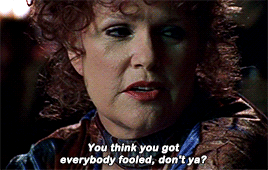
Brian could be seen as a stereotypical promiscuous gay man, but he is really a wounded child. Melanie can seem like a typical “butch” lesbian, but she has the arguably biggest and most sentimental heart in the series. Debbie is the voice of reason and moral compass, but also can get too caught up in her beliefs that she is a good person and hurt those around her. Ted seemed like a typical “loser” character whom I actually struggled to like through the first two and a half seasons... before his descent into addiction, which felt like one of the most humanizing portrayals of addiction I’ve seen. Ben and Hunter are both HIV positive, and neither of them are characterized by their illness or have their arcs primarily be about suffering and death porn.
Admittedly, some parts haven’t aged super well. but without some of those elements (namely, the age difference between Justin and Brian), I’m not sure the story could have pulled itself off with the same poignant psychological insight, the same provocative themes, and the same character depth. So, that one I’m giving a pass on a literary perspective. Other parts that didn’t age super well are that really aren’t any trans or bisexual (although it seems like Hunter is bisexual, though the idea is never really labeled) or nonbinary characters, plus almost everyone is very white. It’s a very outdated understanding of sexuality in some ways (although in other aspects, the show is quite forward-thinking in others--for example, it says “acab” before it was cool).
So let’s break down Hamliet’s thoughts on different themes, motifs, plotlines, and symbolism. I’m going to start with Justin and Brian’s relationship, because it really did form the beating heart of the show in encapsulating, without fail, the main themes of each and every season.
Brian and Justin: Being Human Means Growing and Grieving (Season One)
Brian: Look, I don't believe in love. I believe in fucking. It's honest, it's efficient. You get in and out with a maximum of pleasure, and a minimum of bullshit. Love is something that straight people tell themselves they're in, so they can get laid. Then they end up hurting each other, because it was all based on lies to begin with. If that's what you want, then go and find yourself a pretty little girl, and get married.
Justin: That's not what I want. I want you.
Came in skeptical about this relationship, left convinced.
Through season one, Justin and Brian’s issues build into the tragic finale through the themes of growth and loss that run through each episode of the entire season. Growth is what makes us human, but growing, living, always ends in death eventually.
At first glance, Brian seems to be the character who goes after everything he wants... but he actually is running away from what he wants. Justin is the one who actually goes after what he wants: he is super clingy to start with, to the point where it’s a bit cringe--but also, surprisingly earnest and honest.
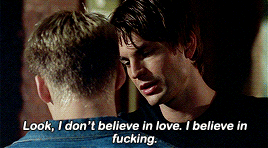
Brian has the opposite problem to Justin’s clinginess: he’s dead inside and pushing everyone away from him. Brian acts like he owes nothing to anybody and desperately has sex with every man he can, and makes a “big spectacle of everything” (as Debbie tells him), all in a childish attempt to feel something, anything at all. He wants to be human. He wants to be alive. But he doesn’t feel like he’s either of these things. His refusal to grow up is not so much a rejection of maturity so much as it is a rejection of his life in general: how can you grow, when you were never alive in the first place?
Justin’s clinginess, while initially a flaw, is actually what makes the relationship perfect: Brian would never grow if he was not relentlessly pursued by someone who also asked things of him (Lindsay and Michael, while great friends, rarely ask things of Brian, while Justin does). Justin's childlike faith in humanity in some ways (and, admittedly less-charmingly, black and white way of thinking) helps Brian experience those things for the first time. The irony of course is that Justin seems like he wants to grow up--have sex, move out of his home, getting a fake ID--while Brian claims he wants to stay young, yet before Justin avoids anything actually innocent. When he finally starts opening up to Justin and his innocence, he’s confronted with what he’s been avoiding the entire season: grief.
Brian needs to grieve his own nightmare childhood and his own issues, or else he can’t ever grow or feel human.
To be human is to accept loss, accept that you aren’t superman, that you can’t control things. Literally the entire season is about the writers handing Brian challenge to grieve after challenge to grieve and him denying it until it smashes into the head of innocence (Justin).
Firstly, Brian is tasked with whether or not to pull the plug on Ted when he’s in a coma, a choice that he thankfully doesn’t have to make when Ted wakes up. Then, Brian’s father tells him he’s dying and Brian finally tells him he’s gay (with horrifying results). His father dies (symbolic again of one symbol of his nightmare childhood passing away), and Brian doesn’t cry, which everyone points out is odd. Brian also ruins his relationship with Michael, and refuses to grieve it, pretending it’s all fine. While they do reconcile, Justin and Michael do more work to bring them back together than Brian does (speaking of, the scene where everyone leaves in disgust, telling Brian off for his cruelty at Michael’s birthday party, but Justin tells Brian “someone’s gotta help you clean this mess” was clearly a double-meaning and a genuinely heartwarming moment). Then, Brian struggles with signing away his parental rights to Gus to help Melanie and Lindsay, and does so in a bold moment without much grief. Brian treats Justin terribly on and off, but doesn’t grieve it because he tells himself that’s just who he is.
However, Justin in season one, despite being a portrayal of innocence, also treats other people pretty poorly. (Brian is largely the exception.) His father is the worst, but Justin is also a brat with an immature understanding of love and people. He does his best to alienate his mother early on. He antagonizes people when he doesn’t have to in order to show off and prove he deserves to exist (like outside of Babylon when he tells everyone he gave Chris Hobbs a handjob, a moment where Brian warns him directly that he’s now “made a real enemy”). Justin’s brattiness is clearly coming from a place of pain and repression, so to be clear there is no moral equivalence there: he only humiliates Chris because Chris has been humiliating him throughout the series.
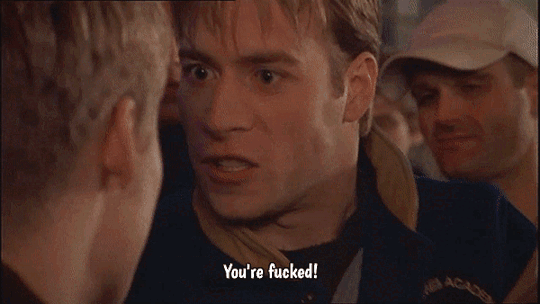
Justin also tries to convince Brian not to sign away his parental rights at first, which hurts Melanie and Lindsay, because Justin projects his own parental issues onto the situation without considering that Brian is not his father and the people involved are so different the two situations shouldn’t be compared. Plus, if anything, Justin puts too much responsibility on others, and is challenged to accept that he cannot control other people and how they feel or act towards him (Daphne falling for him, Brian, trying to win his father’s approval by considering business school despite his father’s hatred of him, etc.) This idea of putting too much responsibility on others is childish and normal for someone his age, and makes Justin and Brian very similar while also having contrasting ways of handling their relationships (clinging vs pushing away).
This all culminates in the finale where Chris tries to murder Justin right when he and Brian seem to finally be happy at Justin’s prom. It’s only then, when Brian sits bloodied in a hospital waiting room, that we see him finally give in, grieve, cry, in the same place he and Justin named his son in the first episode.
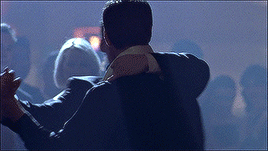
Justin’s lost a sense of innocence. Brian realizes that he is not the island he pretends to be, and that being human hurts.
Justin and Brian: Being Human Means Accepting the Worst of Yourself (Season Two)
Michael to Brian: I think you're afraid to let anyone know you love them. That you have feelings. That you're human like the rest of us.
Throughout the second season, Brian hides the best parts of himself (literally not allowing anyone to know that he visits Justin every single night he’s in the hospital). Brian also self-sabotages himself by demanding Justin hide the best parts of himself (loving Brian) with their semi-open arrangement that fails epically, and Justin leaves him. But part of the reason is fails is also that Justin starts becoming more like Brian, even imitating Brian in word and action when he sleeps with a virgin, and... big surprise, neither of them like Justin becoming more like Brian. Justin doesn't want to be Brian, and Brian doesn't want to be Brian either.
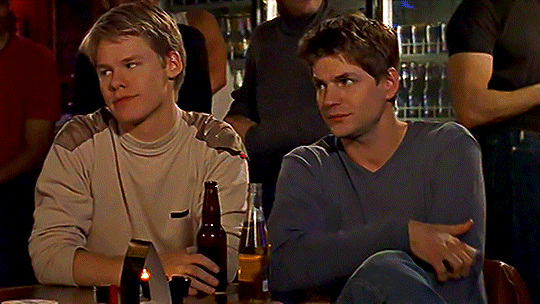
Despite Brian’s narcissistic persona, the dude basically embodies the concept of “methinks thou doth protest too much.” See: him pissing on art of himself as a hero. After, Justin demands a real apology for that--directly telling Brian that his vague “sorry” isn’t good enough, and Brian gives i. A few episodes later, this scene then repeats after Justin starts his affair with Ethan with almost the exact same dialogue, but this time Justin is the one giving a vague apology, and Brian isn’t strong enough to ask for a specific apology.
Justin: I’m sorry.
Brian: For what?
Justin: You know what for.
The point is again that Justin is becoming more like Brian, and it’s not a good thing.
As long as Brian hides the best parts of himself, their relationship is doomed. It’s not a coincidence that after the first time Justin tops him, after Brian literally lets Justin inside, Brian immediately panics and starts causing problems. Brian doesn’t acknowledge Justin’s birthday besides literally hiring him a hustler to symbolize how he’s pushing Justin into another person’s arms (Ethan). To highlight this, we have Ben and Michael’s birthday celebration as a foil, where Ben is upset over his declining health and behaves terribly. However, Ben apologizes, and Michael tells him a major theme:
Ben: There’s no excuse for it. There’s no excuse at all.
Michael: Sure there is. You’re human.
The point is that Brian and Justin are human too, as much as Brian tries to deny his own humanity. Human beings make mistakes. And that becomes a major motif of the third season.
Justin and Brian: Being Human Means Accepting the Best of Yourself (Season Three)
When we see Justin and Brian in the opening of season 3, Brian is still so defensive over Justin despite Justin publicly humiliating and leaving Brian that Brian punches his best friend, Michael, for suggesting that he shouldn’t have saved Justin’s life. This again ties into Brian’s self-hatred: he expects Justin to leave him, even feels he should. But Brian finds it easier to fight someone else on Justin’s behalf than to fight himself to keep Justin; numerous characters comment that Justin left because Brian didn’t fight for him, and they’re right.
Brian and Justin are still stuck on each other, and shown through their indulgence of illusions (fantasy vs reality is another motif throughout every season). Brian literally hires a hooker to dress up as Justin, and Justin focuses on Ethan who is whom Justin thinks he wants Brian to be, only to discover that Ethan is Justin at his worst: brought to life by art, yes, but a cheater, and a liar.
As viewers, we recognize issues all along: for example, during a sex scene, Ethan directly tells Justin “don’t be nervous;” this stands in sharp contrast with Brian, who had previously told Justin that he was clearly “terrified” when they first got together. Brian acknowledges Justin’s fears; Ethan pretends they don’t exist. Ethan wants an illusion; Brian wants the real thing.
We also see the “real you” aspect of Brian and Justin’s relationship foiled with Ben and Michael’s struggle over Ben’s HIV. Michael almost wishes he has HIV to relate to Ben more, and this plotline climaxes in Michael holding a needle to his arm, contemplating giving himself it to be more like Ben, and this line:
Ben: I don’t want you to be like me!
There are other relationships in the show, even nonromantic ones, that emphasize that Brian can’t accept the best of himself. Brian refuses to accept any thanks for saving Ted’s ass, because he’s still denying the best parts of himself. Both our good and bad traits make us human: Brian needs to accept the best of himself, and Justin needs to accept the worst.
Brian and Justin finally face each other while having sex with other people in Babylon’s backroom, but lock eyes and it’s clear who they wish they were with. They have to accept themselves at their best and at their worst to be able to accept each other at their best and worst.
Fortunately, that’s precisely what happens. When Justin decides to win Brian back by interning at his company, he gives him a sincere compliment that Brian can only smile at (ie, Justin confronting Brian with the best of Brian’s traits):
Justin: I've already learned more than I would in an entire semester of school... Which says a lot about you, actually.
Brian: About me?
Justin: Yeah. They say the tone of the workplace is established from the top. So it's a great compliment to you that you have such a dedicated and hardworking staff.
And Justin is then able to show Brian that yeah, he knows Brian’s worst traits. And even with his worst self, he still thinks Brian’s best traits make him worth it, and that Brian can actually become better, grow.
Justin: If you had any brains at all you would never have let me leave. You would've told me I was making the biggest mistake of my life. That I would live to regret it. That what you gave me was worth a thousand--a million times more than anything he had to offer. You would have told me that you loved me, and that you would go on loving me even after I was gone.
Brian then confronts Justin on his worst traits:
Brian: That is so like you! You don't hear what you want, so you leave! Try standing up for yourself for a change!
Aaand then Justin is able to admit his best traits:
Justin: I decided you should take me back... even though I’ve made a few mistakes, I think you’d be making an even bigger one not to give me a second chance.
In other words, when they get back together, they’re able to see each other as fully human.
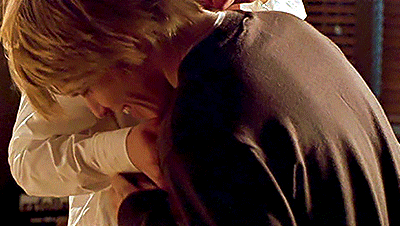
When they get back together, Justin and Brian are able to pretty much save the world by stopping Stockwell. Debbie outright states the season’s main theme after Brian gets fired for sabotaging Stockwell (such a smallscale Trump it’s almost eerie):
Debbie: it's your innate goodness.
Brian: *laughs*
Debbie: we all know good from evil and you’re no different.
Again, the “you’re no different” line emphasizes that Brian is human despite his denials thereof, and being human is not just about fucking and being selfish--it’s about love and community and a long arc towards justice. And then Brian finally becomes the hero Justin and Michael have always believed him to be and gives up literally everything he owns--everything except the people who love him, honestly--to stop Stockwell. Not only that, but no one except his closest friends will ever know he is the one who saved the town.
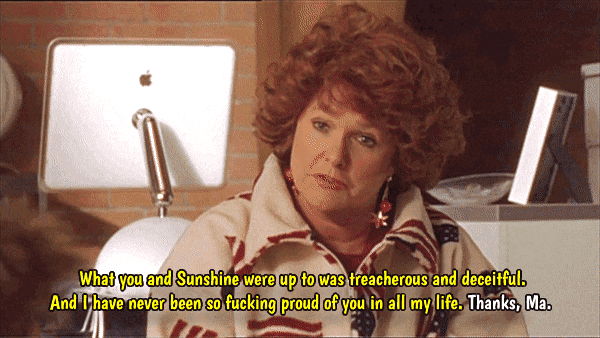
The idea of accepting the worst/best of yourself is also foiled in the finale when Ted reunites with Blake. Ted cared for Blake because Blake brought out the best in Ted--his generosity and kindness and belief in goodness of humanity--but was destroyed by the worst (Blake’s addiction). At the rehab where he once dropped Blake off, Ted finds himself a patient, and Blake as his counselor--showing Ted that there is a future, that the best in you is never dead no matter how far you’ve sunken. You can always find it again.
Justin and Brian: Being Human Means Accepting Help (Season 4)
Season 4 at its core is about learning to be weak and ask for help. Ted needs help finding a job. Ben needs help processing rejection of his manuscript. Brian needs help keeping his apartment. But none of them want to feel pitied, and so they flounder.
One of the ways people can need others is to need others to forgive them. Obviously we have Blake and Ted, Ted and... everyone after his addiction, Debbie forgiving herself for the way she treats Vic, and Brian and Justin forgiving each other and therefore forgiving themselves.
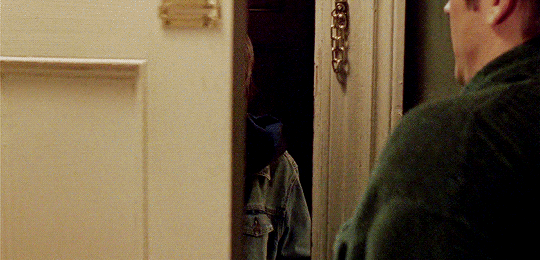
Obviously this was first set up in Season 3, when Brian forgave Justin for leaving him, but it’s further expanded on by repeating a lot of season two’s elements... in a way that doesn’t feel repetitive but instead shines a light on just how much growth the characters have undergone.
Justin’s brief foray into vigilantism is clearly paralleled with his foray into gogo dancing in season 2: both Brian warns him about, but Justin insists he can take care of himself only to get way in over his head. With gogo dancing, the boss sexually assaulted him; with the vigilantes, Justin ends up realizing that Cody is not that different than Chris Hobbs--he’s cruel, he’s hateful, he’s violent, and he only wants to use Justin for his own pride. But instead of how Justin allowed his guilt over needing Brian’s help for school to drive them apart after the gogo incident, this time Justin allows himself to get closer to Brian after realizing Brian was right. Justin also doesn’t forgive Chris Hobbs (nor really should he), but he does realize the pointlessness of revenge.
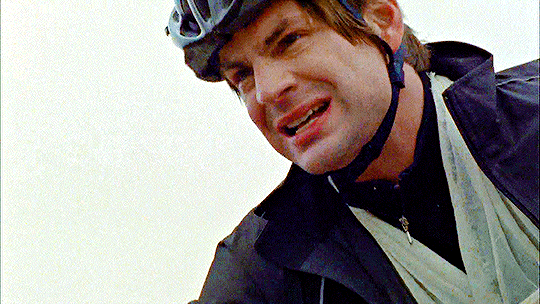
Brian then needs help but resorts to I can take care of myself when he’s diagnosed with testicular cancer. He lashes out at Justin and refuses to tell Justin what’s really going on. Brian’s lashing out becomes particularly cruel where he essentially tries to force Justin to leave him... only for Michael to show how much he’s grown by intervening and mediating. When Brian comes home sick to find Justin cooking soup for him, Brian falls to the floor and is literally struggling to get up from a fetal position (hello, obvious symbolism):
Brian: I’m all right!
Justin: You're not all right.
Brian: Then why are you asking me?
Justin: So I can tell you what a motherfucking piece of shit you are for not telling me! For shutting me out! For thinking that you could handle this on your own! And most of all for thinking that I would leave you! Why would you think that? 'Cause you had a ball removed? 'Cause you're no longer perfect? Well, believe me, Mr. Kinney, that is the least of your imperfections! And if I wanted to leave you, I've had plenty of better reasons.
Brian: Well, maybe you should have.
Even though it’s framed as an argument, it’s actually Brian finally opening up. The look on Justin’s face when he realizes that Brian has finally told him the truth that he’s not been able to admit the entire series--that Brian hates himself, that he thinks he doesn’t deserve any love--was stunning. He said some pretty cruel things to Justin, yet Justin forgave him. Sometimes, that���s the best help someone can give--even the only help.
Brian and Justin: Being Human Means You Can’t Control Others (Season Five)
Brian: My mother was a frigid bitch. My father was an abusive drunk. They had a hateful marriage, which is probably why I am unwilling or unable to form a committed long-term relationship of my own. The fact that I drink like a fish, abuse drugs, and have more or less redefined promiscuity doesn't help... much. As a result, I've lost the two people in my life that mean most to me.
Season 5 is all about everything changing and the resistance people have to change, but that doesn't mean the love that grounds it goes away. Melanie and Lindsay break up for a bit, Debbie leaves the diner only for a copycat to take over, Babylon changes when Brian buys it... and then when it explodes.
Season 5 really explores the limits of change and what can and cannot change. Brian in particular has always used being gay as an excuse for why he doesn’t feel human, when his issues are far more complex than that. His being gay won’t change and shouldn’t (despite what the homophobes scream out their cars in certain gutwrenching scenes), but his attitude towards himself and others and towards his own sexuality can and should and does.
Despite not feeling human and supposedly being very “live and let live,” Brian is actually something of a control freak, as becomes increasingly obvious in season 5. He lashes out at Michael for marrying Ben and setting up house, at Ted for pursuing a monogamous long-term relationship, at Justin for wanting commitment. Everyone moves on, but Brian is terrified of losing the only ways he feels alive... and he’s still stuck in a childish, egocentric mindset that he controls the world. (Justin has his own issues with control this season; namely around his mother’s new relationship, Michael and Ben struggle regarding Hunter leaving, etc).
Brian: Before you and your husband tied the noose around your necks he was perfectly happy! But now, he's a defector, just like the rest of you!
Michael: He was never perfectly happy! Waiting for years for you to say "I love you, you're the only one I want."
Brian: That's *not* who I am!
Not only that, but there’s certainly irony in Brian claiming he “accepts” (his term) Michael’s choice for domestic life, but he clearly does not. The concept of “home”, which has been a motif for Brian and Justin’s relationship since the very first episode where Justin points out he’s not able to go home and hence he stays with Brian, and how Brian negotiates their semi-open relationship in season two with the idea that he wants to “come home to” Justin, comes up again in this same scene where Brian confronts Michael and blames him for Justin moving out:
Michael regarding his house with Ben: It's a home!
Brian: It's a farce! It's a freak show!
Michael: ... (Justin) didn't leave because of (me). He left because of you. Who wouldn't?
Again, there’s irony here. The “farce” and “freak show” are comments Lindsay’s parents have lobbed at her marriage to Mel throughout the show. Yes, Brian, resident gay stud of Pittsburgh, has some serious internalized issues that brush up against homophobia and that just boil down to the same issues driving many of the show’s antagonists: control. Wanting to be God, not human.
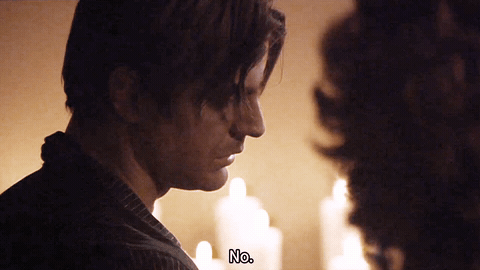
Brian needs to accept the limits of being a human being. You cannot control others. When you love them--to truly love someone--you don’t even try. You give them free will. You love them. You support them. I’m sure you can see the parallels between the general portrayal of the Prop 14 supporters who are using religion throughout the season to try to control others and claim it’s love when it’s blasphemy to call that love.
As usual, Debbie is the voice of decency, not only by yelling at the religious protester “JESUS THINKS YOU STINK!” but also by saying to Brian:
Debbie: your problem is he left you. He left you, and he moved on. Only he didn't. You and he just made different choices, that's all. Doesn't mean that you don't still love each other.
Everything reaches a head when Babylon--symbolic of not just the gay community in QAF, but of Brian’s entire life--literally explodes. That scene is horrifying, disorienting, brilliantly shot and nauseating (like, I almost threw up, and it’s not gory at all--it’s just devastating, and the pure emotion hit me like a sack of bricks).
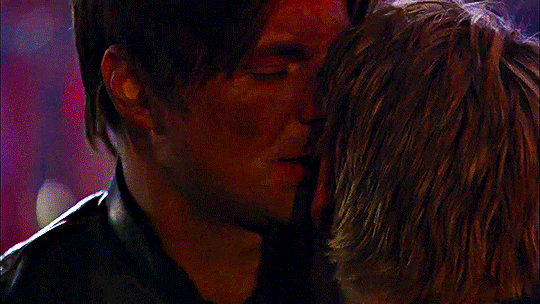
Justin and Brian choose not to control each other, which is actually a sign of love. About the finale, it has its own section below.
The High Cost of Living
Justin: time will inevitably leave its mark... we should accept our mortality with dignity.
One of the things about growing, and growing up, is that you inch closer to death. There is no growing up without wrestling with mortality.
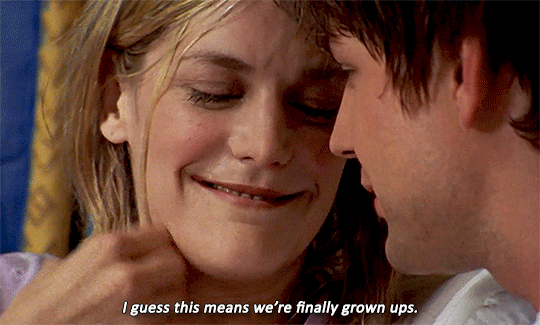
Brian in particular is called out by the narrative constantly. By episode 4, Ted forces Brian to be his power of attorney, to make the final decision whether he should live or die, because Brian needs to make the same damn choice. It’s the central choice Brian will have to make in the series: does he want to live? Because if he wants to live, he has to grow. And the rest of the remaining five seasons constantly ask Brian to think about what that means, holding his feet to the fire and forcing him to grow.
The concept of aging is brought up in terms of this as well. From the start, Brian is terrified of turning 30 (oh boy, I feel ya there, Brian). He’s even suicidal at the thought, because he can’t fathom being older which has dual meaning for his character: firstly, that he’s stuck in adolescence emotionally, and secondly that he’s afraid to take charge of his own life. If he does, he’ll have to take responsibility for things. Being forced to take responsibility for not just Gus, but Justin, Lindsay, Michael, and other moments... it was good. Being young isn’t demonized either: in some ways, Brian being with Justin is a symbolic (literary please I’m not talking real life problematic elements) way of Justin meeting Brian at that age emotionally, and them growing together. Debbie even says that they are “pretty evenly matched” maturity-wise. It’s also a real-world psychological fact that people who experience trauma as children can become emotionally “stuck” at that age, unable to move past it.
All of this ties into the PTSD motif with both Brian and Justin suffering from the disorder post-Chris’s attack. PTSD can make you feel like you’re not really living, which the show displays. A psychiatrist tells Brian:
It's like a fairy tale, Rapunzul or Hansel and Gretl, but the cage is his mind, and it's up to you, the handsome prince, to release it.
This applies to more than just Justin’s repressed memories of the attack; it applies to their entire relationship over the course of the show. They have to escape their cages of trauma and terrible coping mechanisms in order to fully, truly live. Justin is as much the handsome prince to Brian’s trapped Rapunzel as Brian is a prince rescuing Justin--for the entire show.
In season 3, Justin even directly tells Brian that the latest comic based on Brian is about: "It's about thawing his cold heart, bringing him back to life. It's about their love. It's about commitment." Those elements give life.
Season 4 is where the motif of life and death really picks up again, when Vic dies and Brian is diagnosed with testicular cancer. Brian contemplates letting himself go out in a blaze of glory, young and handsome, but in the end goes through with the treatment (which involves removing a testicle) after spending time with Lindsay and his son Gus, with Michael, and with Justin telling him that he loves him again.
The finale of Season 4 has Brian breaking his collarbone and still insisting on finishing the bike ride. Brian is literally in front of a graveyard on the path when Michael shows up next to him and insists that if he’s going to do this, they’re going to do it together. They come to the finish line hours after everyone else has finished, and Brian, in agony, decides he’s close and enough and wants to stop.
But then he sees Justin waiting for him over the finish line, along with Debbie who loves him like a mother, and Ben (Michael’s newlywed husband) and Hunter. And he’s motivated to push forward and finish well, despite the pain because the people who love him want him to live.
The Scarf and Art as Life
That bloodstained scarf Brian buys himself for his thirtieth birthday becomes a beautiful symbol of not just Brian and Justin’s relationship, but Brian’s life, which is forever tied to Justin. Brian at first buys the expensive scarf to indulge himself (as he starts the series doing in spades), then uses the scarf to get off and simultaneously flirt with dying via autoerotic asphyxiation, and then finally uses the scarf to dance with Justin. But the scarf becomes soaked with Justin’s blood after Chris’s attack, and yet Brian continues to wear it.

He can’t take it off, because it’s their lives in a symbol. When Justin starts to remember what happened, he uncovers the scarf on Brian. When they make love for the first time after the attack, the camera focuses on the scarf lying beneath their feet.
Justin’s life is his art, which Brian directly says in the first season, and which Debbie emphasizes by telling Justin as he wrestles with whether or not to go to Dartmouth for business like his father wants or to pursue his art (his own life):
Debbie: you don't have the power to get [your parents] back together. But you do have the power to fuck up your own life. So make sure you think twice before you do it.
Chris’s attack almost steals Justin’s life and his art (literally, though the damage to his brain and hand) from him. When Justin struggles with his recovery and considers dropping out of art school and Brian buys him a computer so he can do digital art, he reacts angrily:
Justin: You can tell everyone you fixed Little Justin's problems? Well, you can't fix this. No one can.
In season 2, Brian pissing on Justin and Michael’s comic is really symbolic not just of the injustice he did to Michael and Justin’s lives, but also symbolic of how he feels about himself (as Debbie says, they literally based the hero on Brian, because “you’re their hero”).
At the end of the series, when Justin goes to New York to pursue his art fulltime, it’s symbolic of him being fully alive--and symbolic of Brian being so as well. Why? Because Brian’s life is tied to Justin’s, forever and always. If Justin lives freely and succeeds, then Brian will as well. Brian telling Justin to go was him choosing to live fully and freely for the first time.
Religion, Fathers, Mothers, and Sons
Justin: I've caused them enough pain.
Brian: It's bullshit. They cause their own pain just like everyone else.
There are so many parental relationships in the series, and they span from the horrific to the beautiful. Debbie is the mom I want to be, and good religious rep... in contrast to, say, Brian’s family, which is horrifying. I mean, Brian’s dad legit telling his son “it should be you who’s dying” when Brian tries to finally tell him he’s gay after his father’s terminal diagnosis was a moment I audibly gasped in horror.
Brian’s mother, however, while horrifically homophobic, cold, and emotionally and verbally abusive, was still very humanized in that it’s clear she has no one to love her and be kind to her. Brian’s kindness is to not take her faith from her. I also liked the priest character, because he was upfront that he never taught anything but God’s love, and God was whom he answered to. He also pointed out to Brian that he has someone he can always count on and have around: God. For Brian, that person is Justin (the religious motif is emphasized also by the fact that Justin tells Daphne “I met God” after meeting Brian the first time, and by the scene in the final season when Brian prays with Debbie for Michael to survive his injuries--although, as both say, they aren’t asking God so much as they’re “telling” (which btw is actually biblical lol). But the point is that Brian then goes and tells Justin the truth finally: that he loves him).
Debbie moms everyone in the group, and helps Jennifer learn to be a better mom to Justin as well. But Debbie can herself grow as well: she projects her fears and trauma over Vic’s illness onto Ben and Michael, and allows her own insecurities to ruin her relationship with her brother.
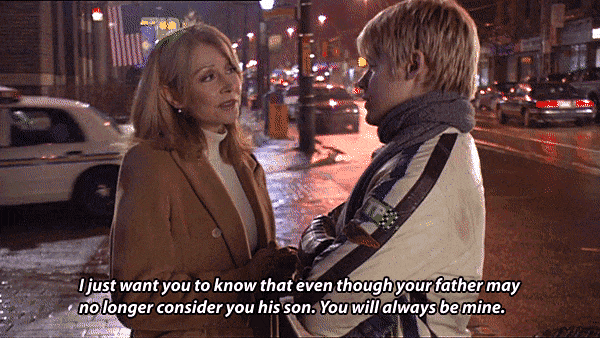
Justin’s father is terrible, but Jennifer is instead well-intentioned and flawed, fairly complex. She at first blames Brian for Justin’s injury, and Brian ironically chooses to believe her (that it’s his fault) over Justin (who directly says “it’s not your fault” multiple times while embracing him). Again, this is symbolic of Brian’s childishness (believing a parent over an equal), but what helps is how Jennifer grows and apologizes to Brian, asking him to help Justin instead. By showing Brian that growing doesn’t always mean turning into a miserable, angry bastard, Jennifer actually gives Brian a good example of how to stop being an asshole.
Parents can grow, because parents are human.
Injustice
Ben: Your children lead privileged lives, and you dare to laugh at my son's misfortune.
By the end of season one, the relationships we’ve been following all reach significant moments: Blake runs away from rehab and thereby from Ted, and he has to face that he cannot save Blake. Michael moves to Portland with David, taking a risk that ultimately doesn’t work out. And Brian finally makes a good choice, coming to Justin’s prom. The couple that made the best decision for each other in that episode? They’re the ones that end up in the worst tragedy, when Chris attacks Justin. It’s wrong, it’s infuriating, and it’s devastating.
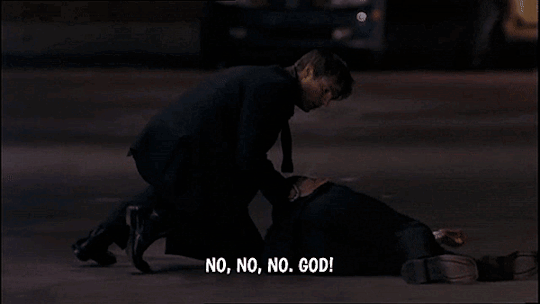
It’s also unfair in another element: the narrative has been challenging Brian to grieve, but Justin being the one actually to almost die seems horrifically wrong--and that’s the point, and what makes it powerful. Justin did nothing wrong insofar as learning to grieve goes, but he pays the price. In this, the show calls out a double standard in society, shows us how unfair it is. The innocent, the childlike sunshine, pays the price for society’s bigotry, for adults inability to healthy process emotions, for all of it--burdens they should never take on.
The motif of injustice comes up again and again throughout the show: Lindsay’s parents paying for her sister’s three weddings yet calling Lindsay’s marriage to Melanie not “real.” Hunter being targeted at school for having HIV after being abused physically, mentally, and sexually his entire life, the pursuit of justice for the murder of Jason Kemp, Michael and Ben not being able to legally marry, the issues around adoption... we also never really find out who attacked Babylon. These plotlines are seldom resolved with feel-good bows (with the exception of Jason Kemp’s murder), because there’s still work to be done in the world.
Love: An Unconstrained Risk
One of the main symbolic messages of the show, especially when taken in the context in which it was made (early 2000s, before same-sex marriage was legal in any state in the USA), is that love can’t be easily defined or put into a box, but love is powerful and life-giving. The fact that most of the romantic relationships in the show were, obviously, queer, highlights this. The romances also weren’t limited by age--we have younger, older, and elderly people falling in love--or by health.
Whether or not legal marriage was allowed, the love and commitment Melanie and Lindsay have is real. Ditto for Ben and Michael. Despite the weird, even creepy on the outset age differences between Emmett and George (and to a lesser degree Justin and Brian), both of these relationships ended up being really beautiful. Love isn’t even defined by time or broken by death: it goes on and on. That’s one of the main messages of the ending--that time and space have little say in the love Brian and Justin have for each other. Love will not, cannot be constrained by forces manmade or intrinsic to the universe. (That said, I still would have liked to see them actually get married, because there was foreshadowing for it... but the ending is well-written.)
Love also comes with risks, which itself is a theme that ties in with the concept of being in the present moment (another theme). Marriage is a risk for Lindsay and Melanie, Ben and Michael, Brian and Justin, Debbie and Horvath--and not choosing to marry is a risk as well in the latter two cases. Moving to Oregon with David only for it not to work out for Michael was a risk, as was choosing to love Ben despite the fact that people were warning him about Ben’s HIV positivity. Vic moving out with Rodney was a risk. Tucker and Jennifer was a risk. Ted falling for Blake was a risk that seemed to not pay off, but then later did.

There is no love without risk, and the tides may not run smoothly, but it doesn’t make it any less real and eternal. This applies to an extent to self-love as well. Drew coming out, Melanie and Lindsay giving themselves permission to get married, Brian really only learning to love himself through loving and caring for Justin.
The idea of love as a risk is honestly most fully embodied in Michael’s character as well, particularly in the motif of fantasy vs reality. Michael’s major issue early on was his unrequited love for Brian, which made him leaving with David a good choice for his character... even if it was obvious the relationship was doomed. Why? Because David clearly loved the idea of Michael more than Michael himself, and Michael loved the idea of David and the white picket-fence life (which he genuinely wants and does get) more than the reality of who David was. With Ben as a husband and Hunter as their son, it was hard, riskier than staying in reveries.
The Finale
Which is again why the finale works from a literary perspective even if my taste is to like things neatly wrapped up. Instead of marrying, they commit to loving each other without full guarantees, because they both still have a little more growing up to do (honestly, QAF is a bildungsroman). Brian’s finally saying the words “I love you” was progress; the proposal was less so because it was made out of fear, out of I can’t risk losing you, rather than a full maturation. But you have to risk in love. I honestly think the implication is that Brian and Justin will end up together for real, probably married, since it’s still abundantly clear that what they want is each other, and they are forever each other’s life; we don’t necessarily need to have it spoonfed to us to see the narrative implication.
I mean, really. The narrative showed us at the start of season five that Brian made room for Justin to move in even while not expecting him to come back from LA (showing a part of him does know they’ll be together), called out the fact that Brian didn’t return the rings, they promised to visit, and how. many. times. did the series have Brian fantasize about going to New York for some fancy life, while Justin’s fantasies were always about ending up married with the love of his life? It’s pretty clear their goals do align--there’s just still more growing to do first. Yes, no future is guaranteed, but the hint at an off-screen happily-ever-after so blatant I’d barely call it a hint. We even have, back in season 4, Vic’s post-death pseudo-spiritual visit to Brian’s dream, where he tells Brian he was lucky to get four more years after his almost-death, but “you’ll have a lot more than that.”
Also again, season 4′s finale can be seen as symbolic of where it’ll end up. Michael and Brian move towards the finish line, Brian, because he’s crippled in pain and literally broken, is running hours later than everyone else. But with Michael pushing him towards the finish line--where Michael’s husband and son wait alongside Brian’s partner in Justin... well, it’s clear they’re still pushing towards that line by the end.
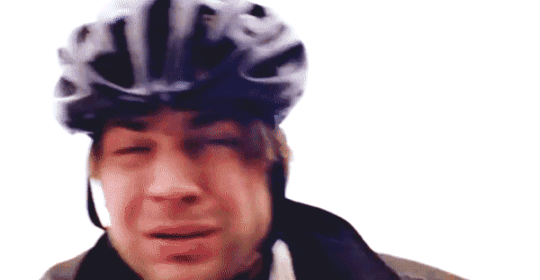
And finally, all the foreshadowing of an off-screen married happily-ever-after ending for Brian and Justin in season 5: Justin going to LA and coming back, despite Brian thinking he won’t. Hunter leaving, and then returning. (Let love go, and it’ll come back.) Someone remarks that it is “magical thinking” that Melanie and Lindsay would get back together, and Emmett responds “Well, you never know.” Lo and behold, they do get back together, despite reaching the lowest of the low in their relationship and doing things to each other that could honestly be seen as unforgivable. Blake and Ted reunite at last, because it had always been “right person, wrong time” for them, and it was finally time. I kind of don’t think the main relationship of the entire series is supposed to be the exception.
Being Yourself
Michael: ...being different is what makes us all the same. It's what makes us family.
Of course, another main theme throughout the show was that of being yourself. It’s pretty expected for a queer show, but QAF gives it a unique twist in how it emphasizes this (not just in season 3). But starting in season one, Brian tells Justin he’ll go on to meet lots of other guys, and Justin replies that he doesn’t want other guys: he wants Brian. The rest of the show is precisely about Justin discovering what that means. The end is Justin still wants Brian, but he doesn’t want Brian to deny himself completely--that’s actually Justin showing that he really loves and wants Brian as he is.
But, the show also emphasizes that no person is an island. People do need each other, and the things we do with our lives do affect others. See again: Brian choosing to go through with his cancer treatment for the sake of his loved ones, Hunter desperately needing Ben and Michael as his parents, and how when the community bands together, they’re really able to accomplish the unbelievable, even the miraculous (taking down Stockwell, rebuilding Babylon).
Stuff I Didn’t Love
The season 3 plotline with Brian’s nephew accusing him falsely was a retread and not a good idea: the idea that kids often lie about that is just not particularly helpful (because it’s not true), and the plotline/challenge for Brian’s character was done much better with the sexual harassment suit from Kip in season one.
The season 4-5 plotline of Lindsay cheating on Melanie and the ensuing custody battle was another retread of Melanie cheating in season one and while it did ultimately not ruin their characters (which it could have done; to their credit the writers made it work), it wasn’t exactly the best choice of writing either.
Emmett and Ted had no chemistry so I could never buy them as anything more than filling space, which I think was the point in the end, but for a few episodes it seemed to be taken too seriously as something to root for when it... wasn’t.
Overall Impression
I’m drawn to stories about existentialism, stories that explore nuance and empathy, stories with themes like what it means to be human, stories that aren’t sanitized for the sake of a moral message (biggest fear for any reboot right here). Maybe it’s again the fundie upbringing, but I constantly feel like I have to earn the right to exist and struggle with accepting both the best and worst aspects of myself, and media that explores questions more so than hammers a message appeals to me (because I actually feel like the messages of these media pieces comes across stronger). Queer as Folk is all of those things, plus some really tight writing and excellent symbolism for any literature nerd to salivate over (most shows never use symbolism anymore! Never!)
In some ways, certain aspects make it very much a product of its time, but in other ways, it’s timeless. It’s really an artistic masterpiece that reminded me of what I love about humanity and life itself, that makes absolutely no apologies for its stance on love as something powerful (another thing missing in modern media: the concept that love wins), that doesn’t give us simple answers for what it means to recover from trauma as individuals and as a society, that doesn’t write literally any single character off as a one-note person who can never change while at the same time acknowledging how hard, long, and winding changing is, and what can and cannot change in a human.
On a personal note, realizing, after I’d finished the show, its connection to a genuinely traumatic childhood moment that actually, years later, helped me escape me a cult adds another piece of sentimental value. And @our-mathematical-universe, you were right when you nagged me to watch this over the past few years.
10/10
#qaf#queer as folk#queer as folk us#britin#brian kinney#justin taylor#emmett honeycutt#michael novotny#ben bruckner#hunter novotny-bruckner#hunter montgomery#lindsay peterson#melanie marcus#debbie novotny#vic grassi#blake wyzecki#ted schmidt#qaf meta#hamliet reviews#queer as folk meta#britin meta#qaf us#qaf 2000
343 notes
·
View notes
Text
Never Have I Ever... Been So Pleasantly Surprised
Watched the latest season of the teen dramedy that is one of the most nuanced shows in existence at the moment, and it's official: NHIE gets better with each successive season. Which says a lot.
I am generally wary of time-skips, especially when they aren't established precedent, am wary of sudden changes to love interests, am wary of late love interest additions--all of which NHIE Season 3 has. On paper, it looked like something I'd be wary of. In actuality, it creates a story that is a compelling continuation of seasons 1 and 2, sets up a strong final season, and is itself a beautiful exploration of love and growing up.
NHIE is thematically very strong, and it conveys its themes primarily through its focus on relationships of all sorts--family, friends, romantic partners. A great part of growing up is understanding the depths and limits and changes in our relationships, after all. So let's review this by focusing on the different relationships in the show.

Des and Devi
I didn't expect them to introduce a third love interest, so I was skeptical it would work without making the series feel cluttered. To my surprise, it did.
Des is like Paxton and Ben in appeal, which teh show directly states. He's intelligent and motivated, but also super hot. He's also Indian like Devi--really the full package, on paper at least.
Except. Except, Des is also like Paxton and Ben's worst traits combined. Des is, like Paxton, a bit of a coward, and like Ben, he's condescending. Unlike Paxton and Ben, and unlike Devi, Des has no desire to grow. He doesn't even desire to grow up, not truly, which makes him an impossible fit in a season that focuses on growing up, on taking the next steps in life. In this, Des stands in sharp contrast with Paxton, who applied himself, got into college, and graduated, in contrast with Ben, who learned he needed to rest and focus on more than just his ambitions, in contrast with Trent who grew emotionally through Eleanor challenging him to make amends with Paxton just as Devi challenged Paxton to make amends with his exes, and in contrast with Devi...
Nalini and Devi
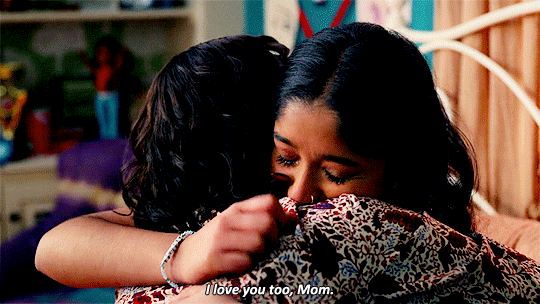
One of the chief ways Devi grows this season is that she comes to understand that growing up isn't just about having sex and a boyfriend and college. It's also about asking for what you need from loved ones, about looking back at mistakes with compassion for yourself, and about appreciating the dreams that got us to where we are now, even if they are not our forever dreams. Life is a series of steps, which Devi comes to understand.
I have loved seeing Nalini's relationship with her daughter develop over the course of the story. Instead of punishing Devi for dating without her permission, when she finds out Devi and Paxton broke up, she consoles her daughter. Prioritizing Devi's feelings over the simple rules shows growth for Nalini... growth that was further emphasized with the Des and Rhaya disaster later on.
When Nalini tells off Rhaya for what she says about Devi, I was cheering. Finally. She points out all that Devi has been through and Devi's own strength, and refuses to allow any mistakes Devi might have made to distract from Rhaya's own issues. She defends her daughter, and shows how proud she is of Devi.
Nalini's contrast with Rhaya was also intriguing. Nalini's a flawed mom, make no mistake, but she's come a long way from her harshness towards Devi in season 1. Rhaya seems like a supportive mom on the surface, the opposite of harsh, but the reality is that by coddling Des, she's creating a mommy's boy. And I don't mean that in a complimentary sense. Des is weak. When he makes mistakes, Rhaya coddles him and can't possibly believe it could be his fault. As a result, Des is a far weaker person than Devi. He's afraid to stand up for what he wants, and he's afraid to stand up for his loved ones. He's all talk and no action. Rhaya's coddling is actually much more controlling that Nalini's strict rules for Devi, and even worse, it actually works in making Des subservient to her.
As for Nalini herself, I personally hope her relationship with Dr. Jackson comes back in season 4, since Ben/Devi should get focus, and Nalini's romance with Dr. Jackson seemed a clear parallel to Ben/Devi.
Eleanor and Trent

Eleanor and Trent are the couple I never expected to work, and yet they work so well. They're weirdly in sync despite being so different. I love them. When Trent strode in to fulfill Eleanor's dramatic fantasy of her first time, without even knowing about it--just--that was one of the best first time scenes I've ever seen and it was just as zany and weird and touching as these characters are.
Fabiola, Eve, Aneesa, and Addison

As for Fab... I'm a bit sad about her relationship with Eve ending, but not that sad because we didn't really know much about Eve. I had hoped that Eve would get fleshed out, though, but alas, not to be.
I do like Addison, a lot in fact, but I also hope that if Addison sticks around, they flesh them out since they have no more personality than Eve did (lots of great chemistry with Fab, though). Actually, I think the writers should flesh Addison. out, because if the only relationship where the love interests remain fairly one-note and personality-less is the queer one... not great.
Aneesa continues to be somewhat of an oxymoron for me. I really like her. And yet everything about her is just stick-on, which is probably a testament to Megan Suri's charisma. She's not really much of a character in her own right. The eating disorder never came up again, nor did her being a Muslim, which is fine, except that these were framed as important earlier, and then they weren't. Same with her being bisexual. I just can't be interested if she's just kind of there, but she's fun to have around.
Kamala, Manish, Prashant, and Pati
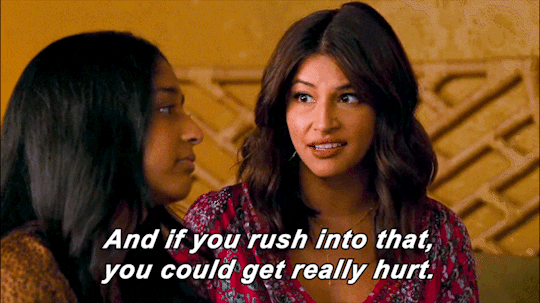
Pati is a savage. She is so a Regina George, and she has a frenemy, and I want her to direct my life.
Just kidding.
But in all honesty, I love her and how her concern for Kamala actually breaks up the family for a bit. Kamala's refusal to listen about Manish is actually the perfect bookend to her arc in season 1. In season 1, Kamala did not stand up for her romance with Steve to her traditional family, despite Steve wanting her to. However, Steve was a dick who had zero appreciation for Indian culture. Prashant was much better, and rooted in Indian culture, but still, ultimately he and Kamala were not compatible.
But Manish is a good foil to both previous love interests. He's Indian-American, but he doesn't know pretty much anything about Indian culture. Unlike Steve, however, he's very eager to learn, because he knows it's important to Kamala and her family. That Kamala does stand up to her family to defend him really shows how she's grown, and also shows that this is the right relationship for her.
As for Kamala, I think her arc is pretty much done. The only top-off I think left is for her to decide whether or not to marry Manish (and the answer, I think, should be yes, for her character arc). I love her breaking up with Prashant in that it is shown that what she did to Prashant was really hurtful, and frankly wrong. However, they ultimately want different things, and that's okay. Not every relationship has to be forever for it to matter.
Which brings me to...
Devi and Paxton
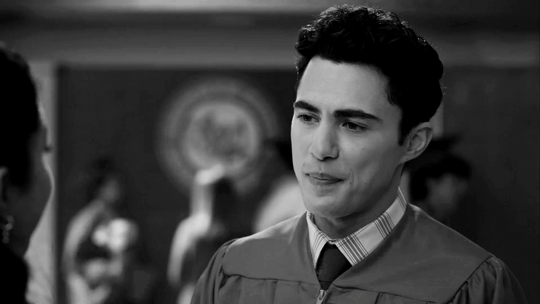
Like with the Kamala-Prashant-Manish triangle, the Devi-Paxton-Ben triangle is well handled. No one is demonized, and no one is the right choice. It's more about how the characters come into their own as burgeoning adults, and how they make each other better.
Devi's development this season was lovely. I love Devi, but she was driving me absolutely insane with her overanalyzing everything with Paxton the first few episodes. Yet by the time the season was over, her maturity was evident, believable, and inspiring. She listens to her therapist more, she comes to understand herself, and she is more mature in her relationships with her friends and family. This is most evident through her changing relationship with Paxton.
I've said before that Devi and Ben are clearly endgame, but that they could never be together if it weren't for Devi and Paxton getting together in the meantime. I stand by that based on this season. But Paxton doesn't just help Devi grow (and vice versa): he helps Ben grow too.
Like with Kamala, I also think Paxton's arc is basically finished, but I do think he'll stick around to influence Ben's arc as Ben tries to decide about Margot and Devi. (Honestly, I wouldn't be surprised if Ben is the one who needs to grow the most next season rather than Devi!)
What I've always liked about Paxton's character is his inherent contradiction: he's at once very brave (think protecting Rebecca), and also has cowardice as his worst flaw (avoiding girls he sleeps with, being afraid to be seen dating Devi, etc.) His cowardice comes from his own insecurities, and having him fess up and own his mistakes this season, plus make reparations for them, was great. He also then realizes, when he's chosen to speak for graduation, that he cannot control what others think of him.
The facts are still that he was chosen to speak because his peers want to see him do a sexy dance or something, and because he's hot. However, Paxton makes the final choice to say no to cowardice about others' expectations and assert who he is: he uses his speech to show how much he's changed.
The ending scene where Devi thanks Paxton after his graduation speech for being her dream was probably one of my favorite scenes of the entire series. The brilliant way it explores grief--and does so without cheapening Devi's silly teenage crush, instead showing how powerful it can be--really stands out in a sea of condescending "choose the right guy, not the one you have a crush on, silly girl" fare directed at teenage girls today. Paxton helped Devi walk again. He helped her love. He showed her she had value. They don't have to be endgame for that to be the case, and their enduring friendship testifies to this.
Ben and Devi
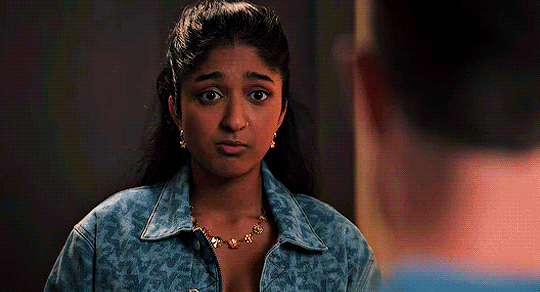
Devi then having a touching moment with her mom and then going to have sex with Ben as the season's last scene was beautiful. Devi's relationships with her friends, her boyfriends, and her family aren't islands that exist of themselves. Instead, they feed off of and into one another. Through Nalini listening to her and encouraging her, through her being able to voice her true feelings for Paxton, she's able to be brave enough to go after what she wants: to have sex, and to have sex with Ben.
Whether or not Ben is mature enough to have a relationship with Devi, though, I don't know. I kind of think this is set up as the major conflict next season. Ben still thinks Devi is leaving for Shrubland, and he's planning dates with Margot.
But Margot, like Aneesa, is probably important for Ben to finally decide to be with Devi. If Aneesa called Ben on his condescension, Margot encourages Ben to look at the world through a more emotional lens, to appreciate the beauty of life instead of always focusing on winning. And when Ben eventually chooses Devi (and he will) he's going to have to choose her because she's beautiful to him, not because he wins her from Paxton.
#nhie#hamliet reviews#nhie season 3#devi vishwakumar#devi x paxton#daxton#bendevi#ben gross#paxton hall yoshida#aneesa qureshi#fabiola torres#nalini vishwakumar#eleanor wong#trent harrison
102 notes
·
View notes
Text
Crows With A Side of Bone, Please
Hamliet finally wrote that review.
I'll start off by saying that everyone is a very good actor. Jessie Mei Li has essentially nothing to work with, but she does her best to sell it anyways and still makes me care about her. Ben Barnes is delightfully evil while still affording the character sympathy the narrative doesn't give him.
The Crows--oh lord, the Crows. All of them have chemistry as a group and as couples. Wylan's actor is fantastic here and feels like a natural fit with the other 5, and Nina's actress also fits perfectly with the crew. They do have a lot to work with, and they manage to fully flesh out their already 3D characters and make them alive.
Kanej, Wesper, Nina/Matthias, Genya/David
The good ships, because this season I revoke my like of Malina that season 1 introduced me to.
I wrote this about Kanej. But also more about Kanej, because OTP OTP OTP.
I loved the final scene with them in the finale, where he grabs her, and she holds his hand and tells him, bluntly, that she does not want him with armor on. The line is one of my favorites in the book, and the show did an excellent job of showing the totality of it, the wholistic nature of what Inej is asking for. Yes, she's asking for him without his cold persona, without his bravado. She's asking for his vulnerabilities.
But she's also asking for his body. For him not to see her as broken. For him not to settle for less than all of her. She is thirsty, and I honestly think this was a beautiful portrayal of someone who has been hurt and is wary, but still wants and believes in the potential for good in sex. The show made this aspect so much more forefront than I remember it being in the books, and I honestly love it.
I also liked the choice to get Wylan and Jesper together early on. The piano scene emphasizes both of their respective gifts, and Wylan's fear over what Kaz might do to Alby clearly projects Wylan's own fears about being condemned for his father. (Wylan is actually one of my favorites in the books because his disability is, imo, good representation.)
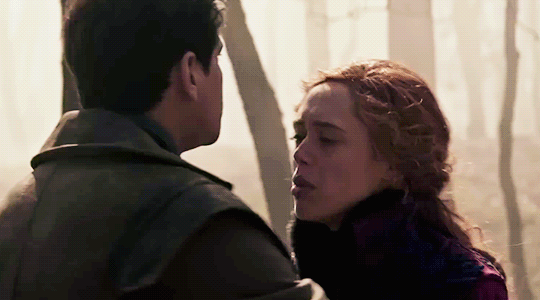
Nina and Matthias didn't get nearly as much screentime this season (together anyways), but they made the most of every moment anyways. Even when they are apart we see the potential in how they are still affecting each other. We see Nina's determination. We see Matthias's hurt. We see the pride and humility they both carry, and how both can inhibit and also free them. There's so much potential there.
The motif of prisons, of hiding, is very strong in the Crows' arcs. Matthias uses his masculinity as a prison and chooses to fight over be free because he's scared. Wylan hides his family and disability. Jesper hides his gift. But if you want to have a complete life, you have to step out into the light. Which is a perfect way to segway into Alina, but...
Let's save the salt for later.
Also, not a ship, but I quite liked Nikolai. His character is one of the standouts in the original trilogy (because complexity). His volcra issue being rearranged timewise to be a cliffhanger I don't mind either.
David's death was, just like it is in Rule of Wolves, cruel and pointless. Just like Matthias's in Crooked Kingdom. Give Genya happiness. She earned it. So did David. Love seeing a woman who's been sexually abused and maimed find hope and healing with an autistic man who is almost NEVER a love interest in stories and then he dies for The Sads. Real inspiring. Real thoughtful. There is no narrative nor character reason for it to happen at all, and so early only made it worse honestly.
Show, Don't Tell
Mal tells Alina he has so many friends in the army that he's worried about, but we saw exactly 0 of these in the previous season. In fact, we saw Mal pulling away from the army to pursue Alina.
It was ridiculous that Alina's response to Kirigan in the climax saying people would come for her was "I will save myself," and then literally ONE SECOND LATER Inej saves her. Alina has never saved herself this entire dang series. Not in either season. The Crows save her each and every time! And that's not a bad thing--it could offer something about the power of relying on others, but to blatantly lie to your audience when you've shown us something else... bad writing yo.
I also wish they'd given us a reason to care about Ravka. They keep saying it's worth saving, worth protecting, but... why? We aren't even given the easiest narrative techniques to make us care about the common people (see, Alby making us care about Pekka even though we hate him=a good way of making us care. Give us a child who needs saving, a connection to the people, something, anything. If people deserve saving just because they are people well, that demonstrably flies in the face of what happens to Kirigan, so....)
Imprinting

It still baffles me that Alina again preaches about choice and yet even fate determined Mal's finding Alina. It was literally imprinting. That's what imprinting is. And for some reason Malina is held up as... healthy? When it's clearly extremely codependent?
It's not a huge problem that it's codependent, though, on principle. It's fiction. What does bother me is the hypocrisy of trying to tear apart every bad thing "bad boys" do while portraying Malina as healthy when it's demonstrably not. Malina would be far, far more interesting, frankly compelling, if they actually delved into this. The cliffhanger hinted they might do just this, but given other aspects, I'm not sure I quite trust them to follow up and follow though.
If you're gonna condemn what some people like and hold up what you like in comparison, at least make sure you're honest about its flaws.
Abuse is Bad Except Not if a Woman Does It. Then It's Girl Power!
Again, the themes of the Crows almost, at times, contradict Shadow & Bones' purported themes. But that's not hard, because Shadow & Bones' purported themes contradict themselves.
I've said this before, but I'll say again that there is a difference between complexity and paradoxes and portrayal the oft-contradictory reality of our world and contradicting your theme. A contradiction is much more common in a simplistic story, which S&B is.
Why is it wrong and seen as a sign of evil beyond comprehension for the Darkling to hurt his mother, who is acknowledged even by the show to have abused him, but not inherently wrong for Alina or Inej or Kaz to hurt their abusers?
Literally Bhagra said "know that i loved you and it wasn't enough." We are NEVER shown her loving him; we are shown abuse, which the show does kind of acknowledge, while also trying to vindicate Bhagra while holding the Darkling to standards it doesn't hold any other character.
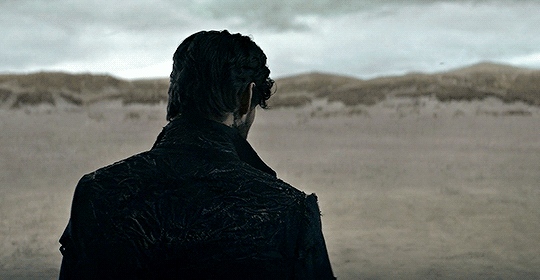
Yes, there's some complexity here insofar as Inej and Kaz's relationships with abuse and revenge go. They aren't black and white, and the characters waffle in the gray. But Alina and the Darkling literally are light and darkness, and the gray is explicitly rejected. And there is actually a way to make this work!
You have to frame it as a tragedy.
Kaz, Inej, Genya et al mess up and do terrible things in revenge; they even at times (especially Kaz) walk the line between utterly losing themselves to it. But they have people around them to pull them back, to reach for them. The Darkling does not. This could be portrayed as something sad, as someone trying to reach the hurting child inside him and him continuously rejecting them (for example, Adam and Blake in RWBY), with his death framed as something to mourn rather than viewed as a moment of triumph, but no. The show doesn't offer him this (to be fair. Neither did the books.)
And to people who say Alina's not obligated to do so! Yes, yes, sure, but also Alina's inherent goodness is just assumed, when she's demonstrably kind of callous at best. I talked about this more in my review of Season 1, but yeah. Nothing's changed on that front.
The point is also that... what has the Darkling actually done to Alina? There were ways to emphasize him as an abuser, which he is clearly coded as, but the show (and the books tbh) doesn't do that. Alina supposedly mourns her parents, but we're given a handful of lines and nothing to actually show us the impact of losing them. (Again, Alina's self-centered focus is actually very much a trauma response to this... or could be, but the story doesn't want to explore it.) The impact of his lies is just not really explored on a deep level like it should be if you want to go for the "abuser" angle. See again, Blake Belladonna for how you do that.
Alina's "there is no redemption" line was baffling to me. It was framed like some sort of powerful "I. Am. Iron Man" moment, except okay, if that's your power girl, I don't think it's a good one.
Power Fantasies

This is my issue with Shadow & Bone the books as well: they aim to deconstruct "Beauty and the Beast" but fail to understand the appeal of the story in the first place is not "oh i have a dangerous boyfriend" but instead a healing power fantasy the same way fight-punch-kick can be a power fantasy. Shadow & Bone also directly tries to deconstruct Jungian symbolism of the shadow, but also doesn't like, understand what Jungian symbolism stands for. Until the ending, that is, when the writers were clearly like "Bardugo doesn't get it but we do and we're keeping it."
Again, I'll contrast this with Blake in RWBY, whose portrayal I have criticized before, but which is much better than the portrayal here. Blake is herself both beauty and beast, which emphasizes the traditional fairy tale's emphasis on accepting the worst of ourselves and recognizing both the beautiful aspects of ourselves at the same time. We tend to see ourselves as either Good or Bad, but only when we see ourselves as both do we mature and truly live. Even though Adam is ultimately "put down" in RWBY, Blake still acknowledges her flaws and doesn't see Adam as inherently bad, but he leaves her absolutely no choice. Alina facing down the Darkling offers her zero introspection and growth.
Sigh. It's a 2.5/5 for me. The Crows are everything. I want their spin off. I need it. I will take Zoya and Nikolai too.
14 notes
·
View notes
Text
Hello, Stranger (Things)
So, Hamliet finally watched Stranger Things, motivated by the promise of a super hot squid villain I mean, 80s nostalgia and a good story.
Overall, I enjoyed it. Eleven and Max are my daughters, and Will is my son. Steve and Eddie are too pure for this world (so were Alexei and Bob). Robin and Erica are amazing. Nancy is my girl. It is a good story.
The writing itself varies wildly, with characterization inconsistency as the story’s main flaw. Seasons 1 and 2 were extremely tightly written and well done. Season 3 is definitely the weakest, with several characters just doing what the plot needed them to do for Reasons, but it ironically has what was, for me, the most satisfying climax. I also found Season 4, while also having some very, very, very obvious flaws in its writing, the most interesting in terms of themes about the past, choices, parents, and more. We’ll see if they continue to explore those in Season 5. If they do, it could be great.
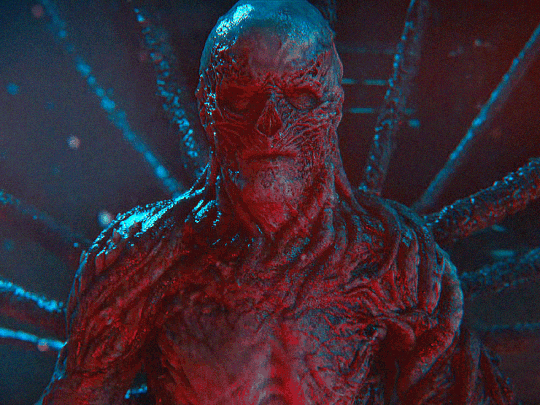
The Part Where I Complain
Y’all know critique’s coming so let’s get it out of the way before I gush about other things and give theories.
Season 1:
The subtext around intercutting shots of Nancy choosing to have sex for the first time with scenes of her BFF literally dying is decidedly Not Great. Yes, I know it is a deliberate flouting of the typical horror movie trope in which the dark-haired girl who has sex gets murdered. But it still relies on this premise that women choosing to have sex for the first time is a negative and results in losing your friends and not knowing who you are anymore.
Season 2:
Season 2 introduces the good victim/bad victim dichotomy between El and Kali, and Max and Billy (which continues into Season 4 with Henry). The writers also don’t seem interested in exploring this deeper.
Also, the writers are addicted to sacrificial death starting this season.
Season 3:
If you thought I was going to complain about Billy’s death, you’re not wrong. But it’s honestly decently done so writing-wise it’s not terrible, and now I’ve complained a bit so let’s go on.
Why did Steve and Billy never interact again? After that fight in Season 2, there was unfinished business. I can only conclude the writers were terrified of the sexual tension. (I kid. Kind of.)
Mostly, here is where the inconsistent characterization emerges. Hopper’s character is the worst victim of this. His arc could have worked, but the execution didn’t. It makes a lot of sense for Hopper to struggle with anxiety and to have all his insecurities stirred up with having a daughter again. But how controlling he was to the point of threatening a child? It wasn’t shown how he got there at all. Hopper deserved a way better arc than acting controlling with El and Joyce without the substance behind that being explored.
Jonathan was also somewhat inconsistent in Season 3, again not because his conflict couldn’t work, but because the writers didn’t put the time or effort into making it work. Jonathan being mad at Nancy for pursuing the rat lead was a bit nonsensical, and then being furious when they lost their jobs--the conversation about their experiences with sexism and classism could be an excellent source of conflict for them. However, it’s brought up just once and then dropped. If you’re gonna bring it up, explore it.
And I know the show isn’t over and these issues could come back, but like. Patience only gets you so far when you’re telling a story in serial format which inevitably affects the experience consuming it.
Season 4:
Why is the Upside Down’s poison air now gone? Do you know how obvious a worldbuilding inconsistency has to be for me to notice and care?
Brenner’s characterization was also a retcon that puts BNHA’s Enji retcon to shame. ~He may have abused and been a monster, but he still really loved them~ The complexity, again, is not inherently bad, but it wasn’t even remotely hinted at earlier and four seasons is a long time to suddenly be like “surprise!” But I am glad El chose not to say she understood at the end.
Ye old "the way the world is is actually a prison and we should change it" is again the ideology of a villain. Like... really, it’s a bit tiring to see revolutionary ideas always framed as dangerous. Not that I’m advocating violence or Vecna’s solution, but. Vecna's making points. Since we can't have that let's show him slaughtering innocents to show us he's wrong even though--well--some of it ain't wrong.
The clear neurodivergent and gay coding of Henry Creel is... here is where I’ll invoke patience. I’m not entirely ready to say I don’t like this yet. It really depends on how the show handles it next season.
The Parts Where I Liked Things
Will’s sexuality (and also, just. Will)
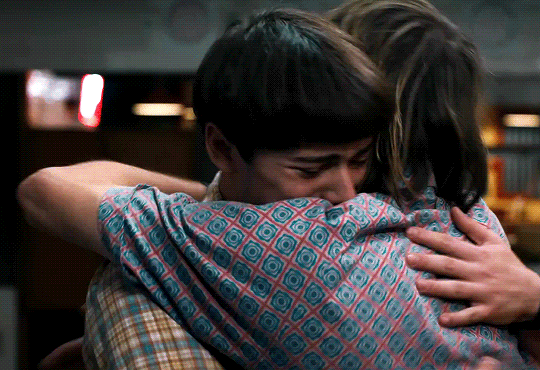
Going into Stranger Things, I only knew a few things. I did know that many people were complaining about Will being a queerbait-y character, and went into the show expecting Will’s sexuality to be a subtextually teased thing that I would complain about.
Not the case.
Even before Season 4 Volume 4, and actor interviews aside, the show is very upfront about Will’s sexuality from like the first 20 minutes of Season 1 Episode 1. If people didn’t get that Will was gay, I’m sorry, but--how? Joyce literally says that he’s “sensitive,” and other kids call him “queer” and other things. Season 3 has Mike directly state that Will does not like girls. Yeah, kids say stupid shit all the time and people develop at different paces, but it’s a story, not real life where we say dumb things that don’t matter. In a story every detail should be important. The writers are trying to set expectations. Something that is repeated multiple times across seasons is obviously intentional. It doesn't need to be spoonfed to the audience be abundantly clear that Will is gay.
The scene in Vol 2 of Season 4 where Jonathan and Will talk--where Jonathan is clearly telling him that he knows Will is gay and he loves him--is beautiful, one of the show’s best scenes.
Give Will a Boyfriend please (Mikhail, anyone?)
But, more on Will later.
Season 4′s Themes
Like I mentioned earlier, I really enjoyed Season 4′s questions about the past, about parents, about the difficulties of growing. Everyone regressed this season: Jonathan being Mr. Mom, Joyce was absent (even w good cause), Max isolated herself, El thought she was the monster again, Steve obsessed over Nancy, etc.
Steve: Too Pure, Too Good For This World
Speaking of Stancy/Jancy... the writers really don’t need to draw out this love triangle. Unless a major retcon is coming (not impossible), Jancy should be endgame as it’s always been set up to be. Steve and Nancy will probably have another moment, but there’s enough weird framing of Steve’s feelings in Season 4 to make me doubt any possible endgame for them. Despite Dustin and Robin insisting it’s true love, Nancy never once said it was love herself, and the problem is that Steve also says--after Dustin has already suggested he get Nancy back--that he would date Robin if she was not a lesbian. Hence, I’m not convinced the story wants us to buy Steve really loves Nancy, or if he just loves an idea of hers.
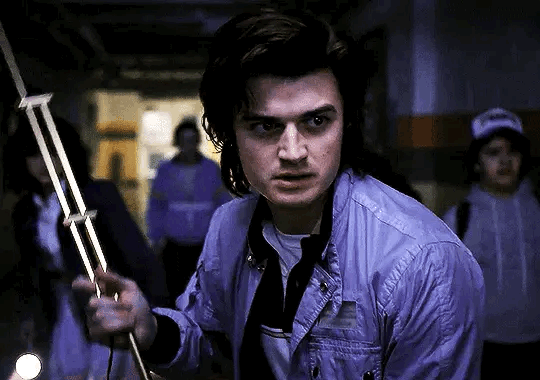
The thing is, Steve already has what he says he dreams of. He wants six kids. Well, that’s ironic considering he has six kids Robin explicitly identifies as “your kids”: Dustin, Mike, El, Max, Lucas, Will. He also says he dreams Nancy is there with them and the kids--and she is. She already is, even if not romantically. My guess is Steve will realize this at the end of his arc.
Honestly, Steve’s arc is a fantastic deconstruction of toxic masculinity. Which... don’t hurt him Duffers. Don’t. I’m begging you.
Max Will Be Fine
Seriously, I promise. Max will be fine. You don’t leave a character in a coma unless you plan to wake them up, unless you’re the latter two seasons of Angel levels of horrifically bad writing which, for all of my complaints, Stranger Things is not.
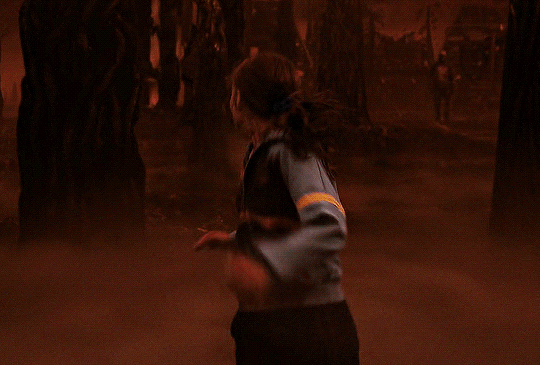
Max is heavily foiled with Vecna (and Chrissy): traumatized, isolated child subject to the whims of their unstable mother. Vecna tells Eleven that he wants them to make their own rules, essentially to be gods of the world. Max, way back in Season 3, tells Eleven that “we make our own rules.”
Max’s words are what El remembers when she brings Max back. No, this isn’t negatively framing El bringing Max back. It’s showing that there might in fact be some nuance. Max’s rules are based in love and friendship, in hope, in love of humanity, while Vecna’s are based in hatred of humanity. To uphold Max’s message--which the story needs to do--Max has to live.
Eleven, I am Your Brother!
Okay, now let’s talk Squid.
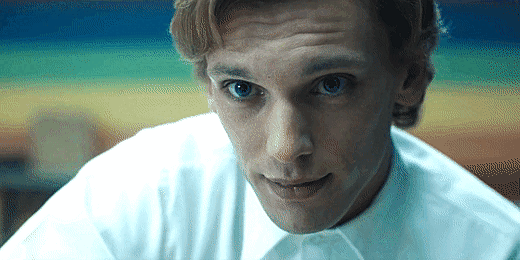
Henry’s whole story is Star Wars. Actually, Season 4 was just Star Wars (makes sense given the 80s stuff). Brenner was Yoda, telling Eleven that she wasn’t ready to leave just yet, that if she ran out to save her friends she’d fail. I know the prequels weren’t until the late 90s-early 00s, but Anakin killing the younglings is clearly the inspiration of Henry’s rainbow room massacre. And Henry’s “join me, Eleven, to build a better world” speech is essentially Vader’s speech to Luke and Kylo Ren’s speech to Rey braided together.
With that said, I fully expect Henry to get some kind of human ending. Will he atone? Don’t think so. But the foreshadowing is pretty obvious. (More on that later.)
Brenner tells El that she and Henry are not alike: “that’s where your similarities end.” Brenner’s the least reliable narrator about this. (Also, you cannot give the abuser--Brenner--a redemptive death and not give that compassion to his victim.)
El and Compassion
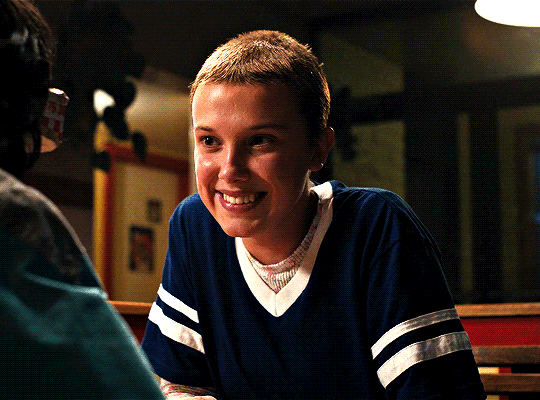
El’s true superpower isn’t her telekinesis. It’s her compassion. It was her compassion, her empathy with the abused child in Billy, that inspired Billy to sacrifice himself. Her compassion saved Will. Yeah, she’s human and lashes out, but she loves deeply. Her compassion freed Henry and then her uncontrolled powers turned him into Vecna (not that she’s at fault; she isn’t). But her compassion should ultimately be what helps save the world.
Vecna himself asks El this. "Why cry for them after everything they did to you?" Well, let's see Vecna. Why does Max cry for Billy? It’;s kind of a theme in Stranger Things. Even without forgiveness (like El not forgiving Brenner), she still acknowledged his humanity. I don’t have to love it to see the theme as it is.
I strongly suspect the main question at the end for Vecna will be "after all I've done to you, why cry for me?" But compassion is what Vecna’s missing, what he lacks in his view of humanity. It’s the true magic of being human.
Henry and Vecna, Unreliable Narrator
Did Vecna choose to become the monster like he proclaimed? Yes. And no.
It’s not a coincidence that an abused child targets other abused, isolated, and traumatized children. Even if Victor loved Henry, his mother was clearly implied to be considering locking him up and lobotomizing him. Like... woof. There’s a lot there subtextually. He’s clearly targeting himself as much as he’s targeting everyone else. I’m not sure the writers will entirely explore this, though. But I do think they will have him experience humanity again. They should.
Honestly, Victor should die trying to save/stop his son. If Victor’s alive, and if he mourns his son--which he does--he should have to consider whether he loves Henry despite everything that Henry has done. If he does, he should try to convey that even if it kills him.
But who will the actual key be to stopping Vecna?
Will as the Key
So, there are two characters--and only two--who have survived the Upside Down for any significant length of time. Vecna, and Will.
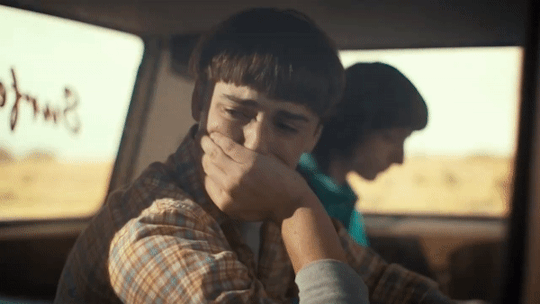
I actually think Will is the one who can reach Henry. It can't be Eleven, because Henry sees her as having hurt him. But a “weak” helpless boy who is an outcast, gay (Henry is absolutely coded this way) and has just been suffering his entire life still choosing love (or even choosing corruption for a time and going back to love/friendship even though I doubt the writers have the balls for this particular plotline)?
Vecna thinks he and El are the two most alike, but it’s actually Vecna and Will. And Will is so human, in everything Henry thinks he hates about human beings. He’s not superpowered. He’s a sad boy in unrequited love with his best friend. He just happens to have a mom and brother who love him.
Plus, tbh, structurally Will should be the focus of season 5. Season 1 was Mike (the heart, which Will called out funnily enough in Season 4), Season 2 Lucas (the mind), Season 3 Dustin (the body), Season 4 Eleven and Max.
Obvious Foreshadowing is Obvious
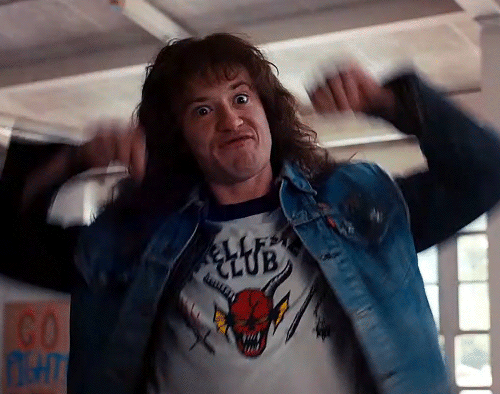
I’m not sure how much clearer the D&D game at the start of Season 4 could be in terms of foreshadowing. 11 couldn’t defeat Vecna.
But 20 did.
How interesting that the three kids still alive are 11, 8, and 1, which totals 20.
Henry--Vecna’s humanity--is probably going to be key to stopping himself. No, I don’t think he’ll get any sort of classic redemption, and he certainly won’t survive it, but I can see him pulling a Zeke Jaeger where he doesn’t exactly repent but still chooses to sacrifice for some bigger goal like destroying the Upside Down or something in a moment of compassion in the end.
#hamliet reviews#they will be fine#max mayfield#eleven#peter ballard#vecna#henry creel#stranger things theory#stranger things meta#stranger things season 4#victor creel#jonathan byers#steve harrington#nancy wheeler
64 notes
·
View notes
Text
How To Write Badly 101: The Season
Or, I review The Dragon Prince season 4, at the urging of a friend who is much more invested than I am. If you do not want to read immense salt and criticism, this is your warning.
My expectations for were extremely low and somehow the show managed to dig a tunnel beneath and go lower than I thought possible. Disclaimer: I've never been hugely invested, so I'm mostly amused about this game of how low can you go?
Claudia continues to be the only actual character of substance, while Once Characters Rayla and Soren slowly lose their potential. Never a Character Callum continues to be a lamp passed around the plot who gets things just for being a lamp.
A lamp character is a character who could be replaced by a lamp and there'd be minimal to no change on the actual story. It's pretty bad when your main protagonist is a lamp. What makes him even worse than, say, Alina in Grishaverse, is that Callum is treated like he's a special lamp when there's canonically zilch special about him. At least Alina is like, literally light and no one is like her. Callum is just an IKEA piece. He's a mage but cool, what does that cost him?
The time gap supposedly had major events happen off screen--especially romantically. Except... none of it is really explained, and thus it falls flat. Rayla and Callum broke up because there's never been tension between them and they offer each other nothing at all in a ship, which becomes apparent especially when they're together. Breaking them up is a way to at least manufacture tension. If you can call that tension, because their breakup added nothing at all to their character arcs.
Not that Callum's ever had an arc. But honestly, like, you need to show conflict. You need to have Callum saying that it triggers his fear of losing people, show him distressed more than just moping. Show him distressed by his actions, or present passivity as a flaw, but Callum has never had an actual flaw introduced so there's no place for this plotpoint to build besides "let's create tension for shippers."
Rayla... I like her. I want to like her even more, but her leaving is never explained. She seeks Claudia for... reasons? Presumably her parents? But y'know, you need to actually show consequences for leaving, and explain why she decided to come back more than just "the dragon queen was coming!" Was she lonely? What provoked her to come back? What are you trying to tell us? (Nothing. They don't have a story.)
Rayla's choice towards the end of the season was utterly ridiculous. The coins needed to be mentioned, like, way earlier in the season to remind us rather than just coming out of nowhere. Her grief needed to be explored, and her running away was like... an opportunity there, but it wasn't explored, so her choice to trade Terry for the coins had no resonance at the end. There were no consequences, no results, no impact of that choice. It was just empty. Like the show.
Terry... hoo boy. I want to like Terry. I kind of do despite how much of an obvious "morality pet" he is in the plot. His relationship with Claudia is very sweet, but again, it comes from nowhere. We have no exploration of what this means to them, no idea of what drew Terry and Claudia together, no idea of the basis of their emotional bond. You can't build a compelling ship without that.
Lastly, Terry's rebuke of Claudia towards the end was... bizarre, and nonsensical writing-wise. Like. The end of the last season showed a body. Claudia clearly killed people to bring her father back. So why is Terry horrified by Claudia taunting Rayla with fake coins about her parents, especially when it's to save his life? Terry also has previously killed someone who was about to kill Claudia. Make it make sense.
Soren... baby. You absolutely cannot cut the reunion between him and Viren. And yet! They did! I'm sorry but???? You absolutely can't skip that? For either Soren or Viren's arcs? Unless you're dropping both arcs, which it sure looks like you're doing.
Also, the plot. Nothing. Happened. The entire season. We need to free Aaravos in 30 days! At the end of the season, he still ain't free, and I'm begging him to appear because dear dragons someone needs to shake up this world.
Oh, okay, sometimes threats needed to happen. I wouldn't really call it plot, but there were occasional moments of pretend peril. The dragon went nuts in the end and almost killed them for... reasons I guess? I'm sorry but I don't understand why and the why doesn't matter in the end; it was the peril that was important because stakes! Except there aren't any.
Rule 1 of writing: anytime you have "and then" instead of "because" or "but" linking events/plot points, you're f*cked. It's boring.
Also, the sun elf subplot... was awful. Janai had no arc, and the story didn't parallel or link with the A plot. Her romance with Amaya is cute but again, the bond between them is not explored this season--it's told. Show us moments where they only have each other, moments where duty and love both tug at the heart!
The actual story itself was like an attempt to copy Black Panther, with the brother challenging the heir, but make it pointless because boring is clearly the vision they're aiming for. Because the Sun Elf Queen just wins because she's good, and people are good. Which is not itself a bad theme, but the point is that this whole plotline went nowhere and changed nothing for the story as a whole. It's dumb. Listen I am all for optimism in stories, especially those catered towards kids, but make it matter! Otherwise it's just boring!
And sure, maybe these things will matter towards the endgame? Maybe? But it should matter this season as well, and considering how poorly the show has done making everything matter so far, well, I am not holding my breath.
16 notes
·
View notes
Text
Chemical Weddings: Bumbleby
So, it is Spring (the season of love :P), so I feel like writing short metas on some of RWBY's chemical weddings. Let's start with Bumbleby, since they have just celebrated their first year anniversary!
WHAT IS A CHEMICAL WEDDING?
A chemical wedding is a motif used in alchemical stories (aka stories, with symbols related to alchemy). It is a metaphorical union between characters and it represents two opposites coming together. Think of it as a motif that comments on a relationship and describes how it changes throughout a narrative. It shows how two characters' bond develops and how they integrate qualities of each other. Even if it is called "wedding", the union doesn't necessarily have to be romantic, but often it is. Like in RWBY's case.
RWBY uses chemical weddings to develop romantic relationships. How does the series do it? This meta by @hamliet explains it perfectly:
It uses some alchemical imagery (like plates from alchemical texts as reference)
It employs elemental motifs (water, fire, air and earth), which are keys to alchemy
It integrates other symbolism, like romantic subtext or fairy tale references
Both hamliet and I have already talked about RWBY ships and chemical weddings, so this short meta is just a quick review of Bumbleby's ones, with some integrations.
Here are Bumbleby's posts, that I am going to reference:
Worthy
Yang's Goldilock allusion
Blake's Jungle Book allusion
Now, let's dig into Bumbleby's three weddings.
BUMBLEBY'S WEDDINGS
Bumbleby's weddings make use of this imagery:
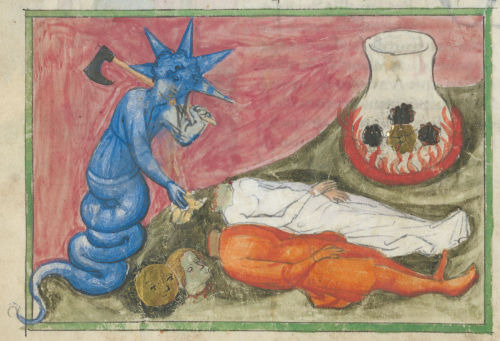
This picture represents a (violent) union of opposites. Mercurius (a spirit representing change) beheads the Solar King (red) and the Lunar Queen (white), so that they can start their process of transformation. It is a union through destruction (solvet). This is the key to read Bumbleby's evolving relationship, which keeps growing through a series of metaphorical deaths.
This is the first and most violent one:
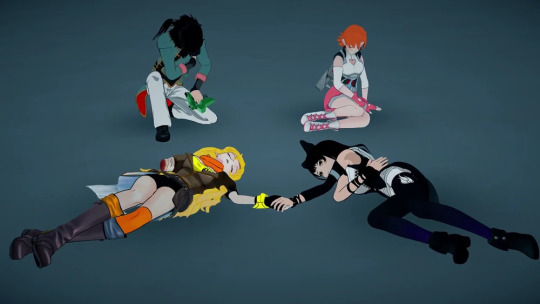
Luckily, neither Blake nor Yang get beheaded, but they still suffer physical wounds by their antagonistic Mercurius aka Adam:
Blake is impaled and scarred
Yang loses her right arm
Obviously, the physical hurt mirrors their psychological one, which is a consequence of Bumbleby facing their shadow. The Jungian Shadow is everything a character represses. In Blake and Yang's case, they live happily at Beacon, while ignoring their respective issues:
Blake's past with Adam
Yang's abandonement by Raven
Still, these two traumas come back and go in the way of their new-born relationship. They can't be together if they do not integrate their repressed shadows, to this first wedding marks a separation.
Both girls go through individual developments, where they face their shadows. In particular, Blake integrates Ilia and fights Adam, while Yang faces Raven. The result of this integration is a reunion, which happens through a second death. Specifically Adam's (once again their antagonistic Mercurius):
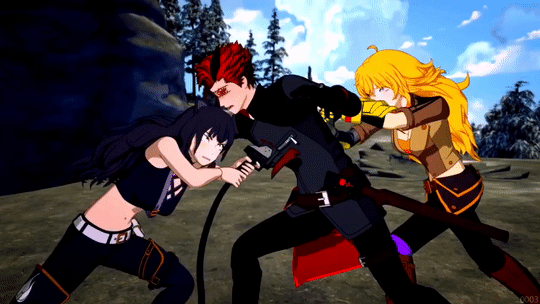
Blake and Yang come together to kill Adam, which is a traumatic experience for both. Moreover, they still suffer damage, as Blake's weapon symbolically breaks:
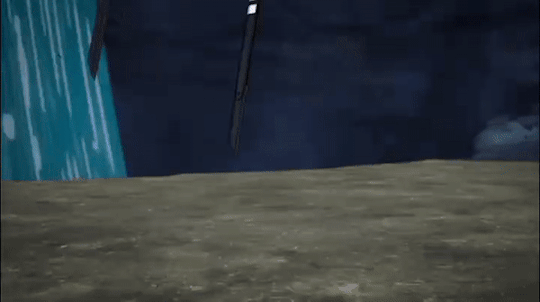
Still, Gambol Shroud gets repaired and its new form symbolyzes Blake and Yang's integration:
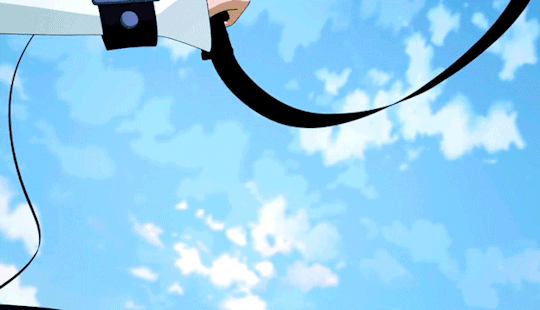
Blake and Yang live through destruction and become stronger and more united thanks to it. Not only that, but Bumbleby's second wedding marks an exchange of vows:
Blake: I don't have a choice. I have people who actually care about me, and I promised I'd never leave them again. So I'm not dying now.
Blake: I… I am not going to break my promise, I swear.
Blake opens the final fight with Adam by announcing her vow and confirms it by the end of it. Essentially, Blake and Yang promise to be there for each other, which is the main purpose of a romantic wedding. A promise of sharing both happy and hard times.
Their vow is sealed by them killing Adam, which ties into Blake's Jungle Book allusion. In the story, Mowgly can't leave the jungle unless a bull is sacrificed, so Bagheera kills one for him. Here, Blake has to kill a Bull Faunus, so that she is free from her previous bond with Adam and can step into a new relationship with Yang. It is a violent union, which starts with a promise:
I made a vow
I'm not alone
Not dying now we're protecting our own
This promise is fully fulfilled in volume 9, where Blake and Yang find a metaphorical Ever After. They confess their love, while surrounded by the four elements and symbolically consume their wedding. They are bees, who get together and make the flowers bloom through their honey. This third wedding is a non violent one because both Blake and Yang have grown mature enough to embrace the other. They can finally stay together and integrate completely. That said, even if they are now worthy of each other, the shadow still pops up:
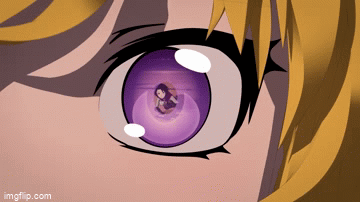
Blake and Yang consume their wedding and are finally together. And yet, when thay are at their happiest, Ruby's shadow conquers her and she risks her life, without Blake and especially Yang being able to help her. Not only that, but before attempting suicide, Ruby lashes out specifically at Blake and Yang's union:
Ruby: Smiles all around! Maybe even finally get our feelings sorted out! Good for you, by the way. We’re all so happy for you!
Why is that so?
TOO HOT, TOO COLD, JUST RIGHT
It has to do with a motif deat to Yang's arc: too hot, too cold and just right. This symbolism comments the entirity of Yang's development, but when it comes to Bumbleby's bond specifically, we have...
Too hot- first wedding:
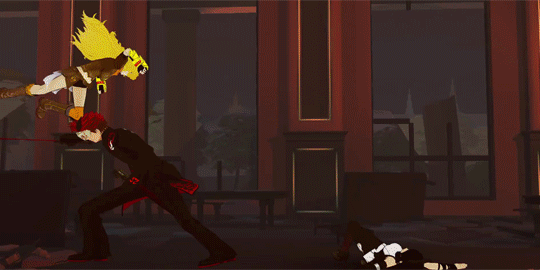
Blake and Yang face off against Adam, while fire and flames burn everything around them.
Too cold- second wedding:
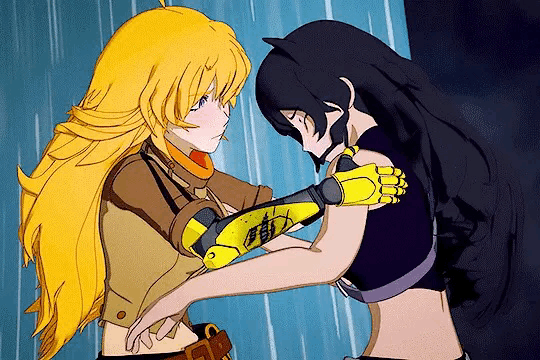
Blake and Yang win against Adam while surrounded by water, which washes away their enemy and trauma.
Just right - third wedding:
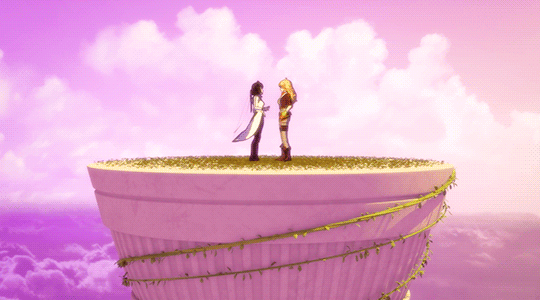
Blake and Yang kiss while on a platform in the sky (air), which is full of flowers (earth). Air and earth come together, just like Blake and Yang. Two opposites find balance (and avoid falling):
You fell
And suddenly I did too
While the world was dying
Didn't know how to not lose you again
Hands down
Heart wide
I've only ever known the fight
But I'll catch you
This time
I'll never let you out of my sight
And yet, no matter how much Blake and Yang grow and integrate with each other. Outside of their control, bad things will still happen. Like Ruby going through a personal struggle. Like Atlas falling. The point of Bumbleby ending up together isn't that they will be happy ever after. Rather it is that they will be each other's ever after and will face both good things and bad things together. This is the point of the archetype their ship embodies.
BUMBLEBY = THE SHADOW
Each main ship in RWBY represents a Jungian Archetype. Bumbleby is the shadow:
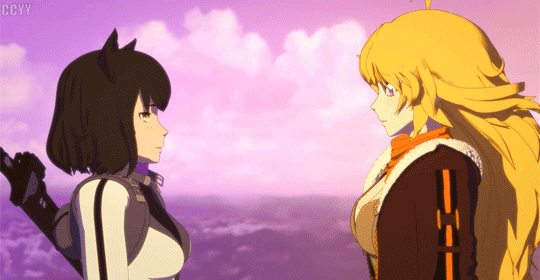
Their story is commented by a:
light and shadow motif
Beauty and Beast allusion, where beauty represents the light and beast the shadow
In alchemy, the shadow is linked to the Nigredo phase (Blake's phase) and to destruction. So, the bees' love story explores these themes. Thankfully, RWBY is an optimistic story and after a symbolic death comes a symbolic rebirth.
NEVERMORE
Nevermore
Nevermore
You'll torture my heart and my head
Nevermore
Nevermore
Will I be afraid
Nor will I run away
It's behind me
Freedom is finally here
You may have taken the lead but I'll even the score
You won the battle you won't win the war
Not now and
Nevermore
In RWBY, there seems to be a chemical wedding (usually the second), that employs a Nevermore:
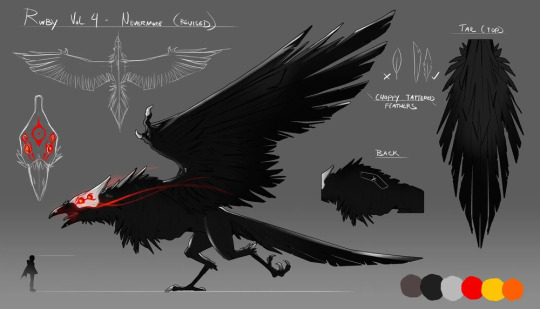
This Grimm symbolizes grief and it pops its ugly head in weddings because RWBY characters overcome grief and pain through love.
In Bumbleby's case, the Grimm doesn't appear directly, but it is still present thanks to their shared song Nevermore, which alludes to both Beauty and Beast's Evermore and to Poe's Poem the Raven:
“Wretch,” I cried, “thy God hath lent thee—by these angels he hath sent thee Respite—respite and nepenthe from thy memories of Lenore; Quaff, oh quaff this kind nepenthe and forget this lost Lenore!” Quoth the Raven “Nevermore.”
In Poe's poem, the lament "nevermore" is a symbol of a loss impossible to overcome. In Bumbleby's song, the battle cry "nevermore" shows how both girls are ready to fight for what they have left. It is not about finding an ideal evermore, but to give up on love and hope nevermore.
30 notes
·
View notes